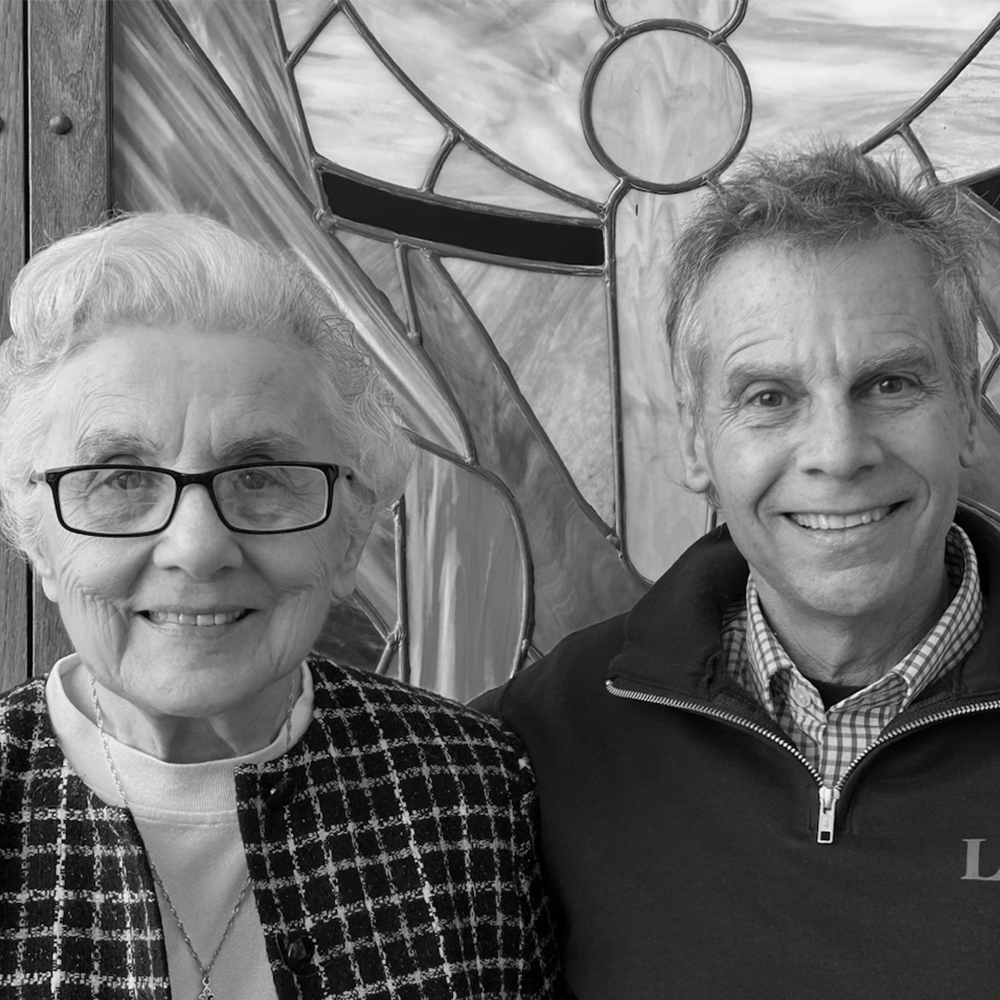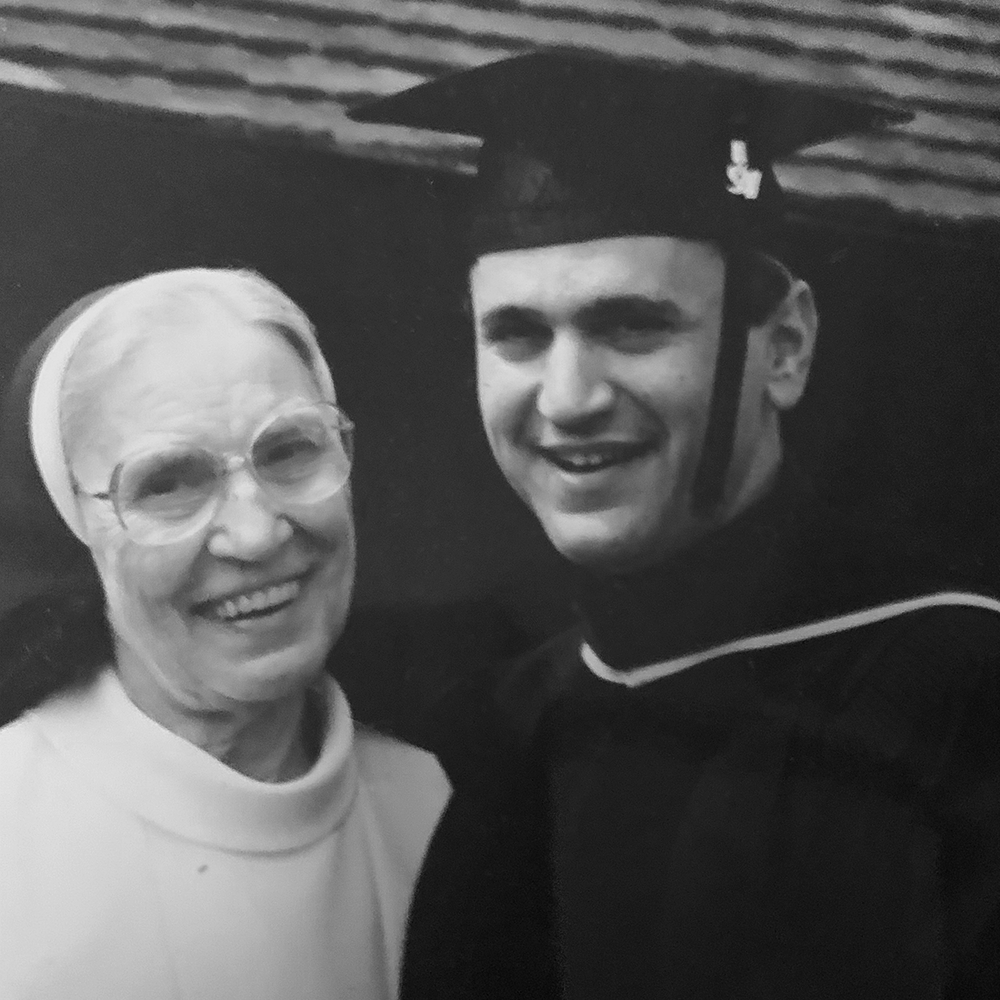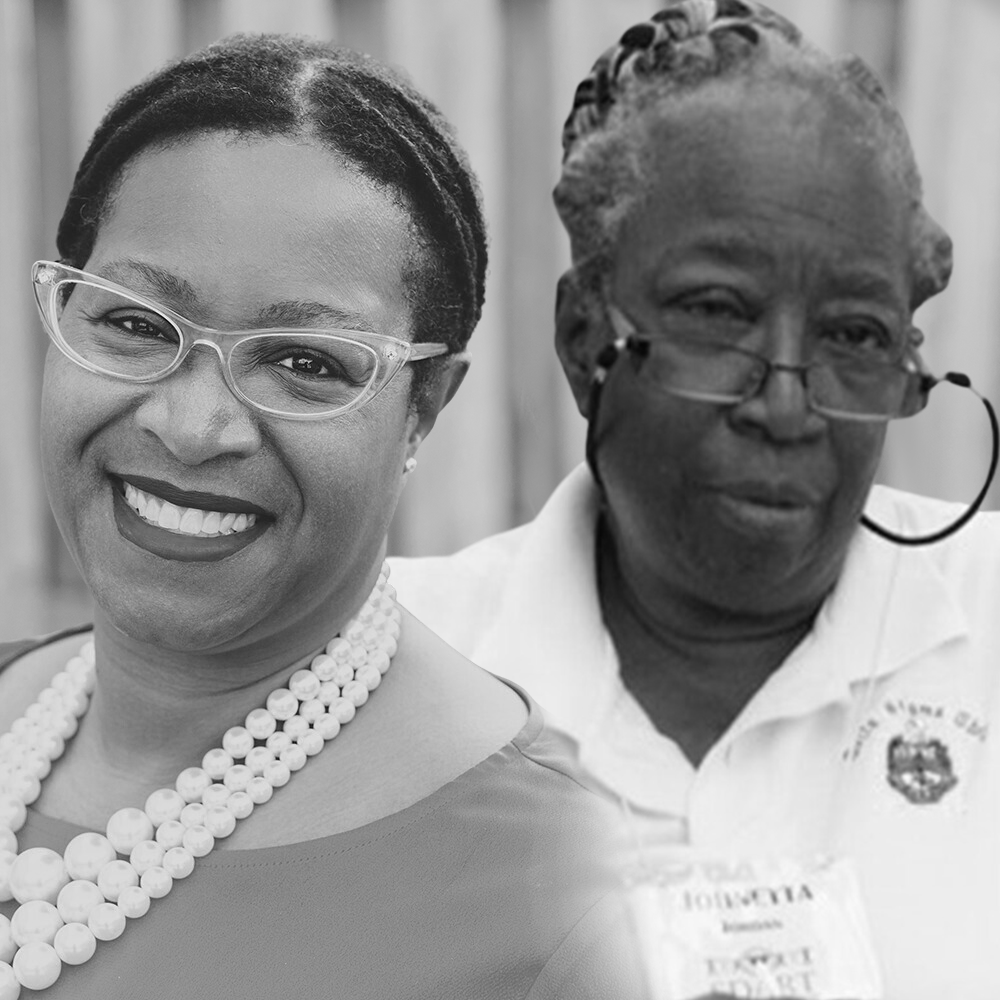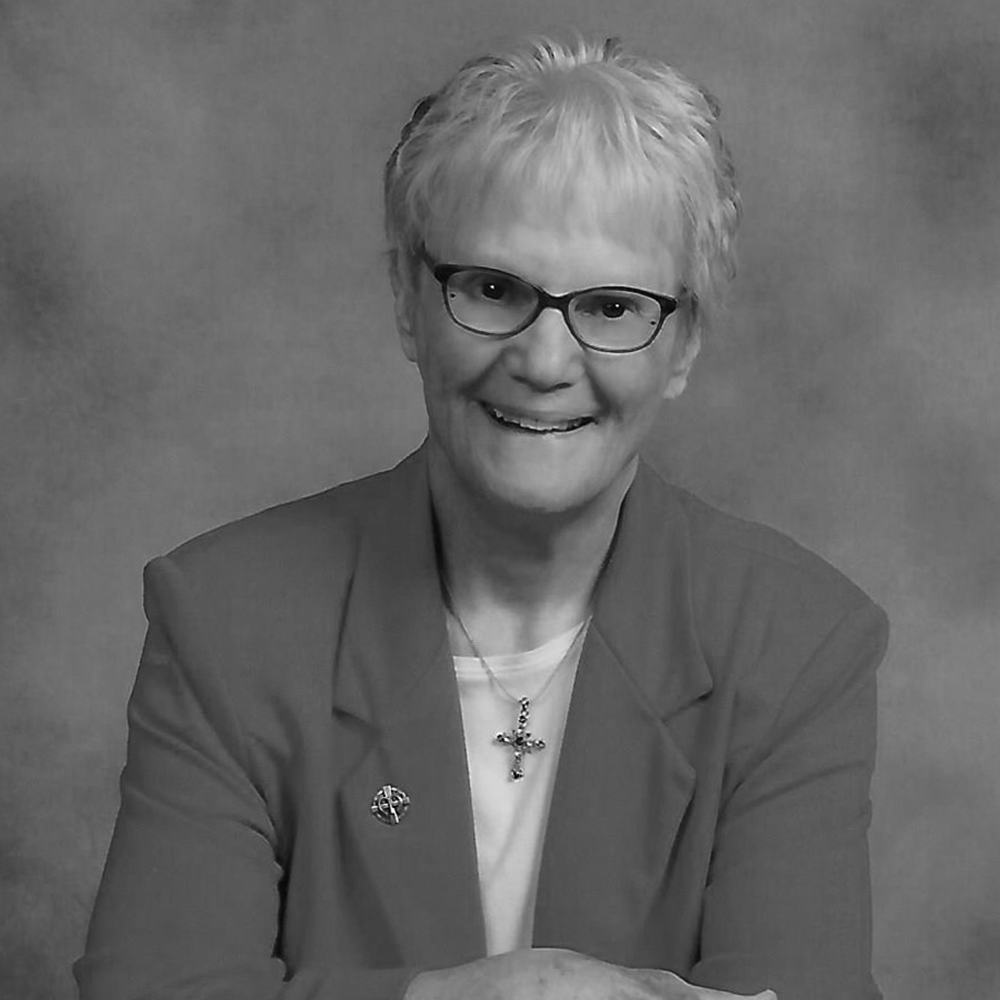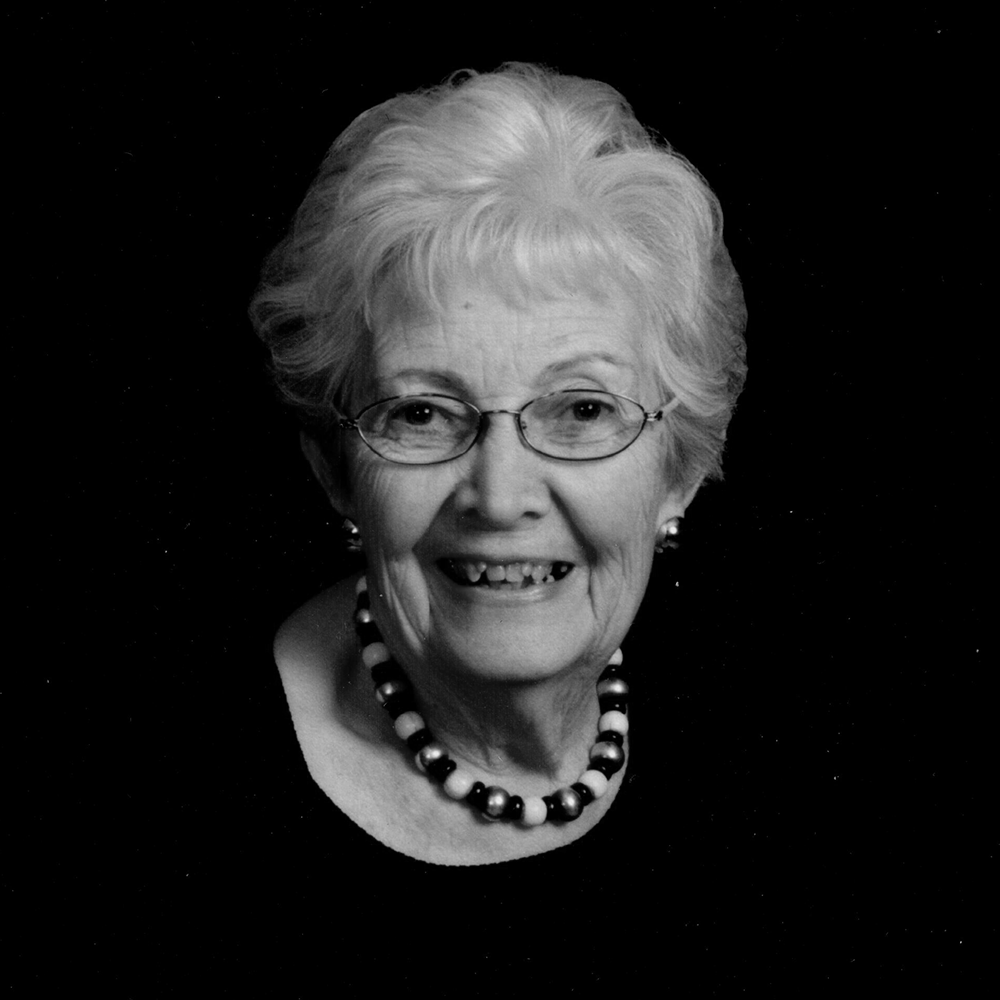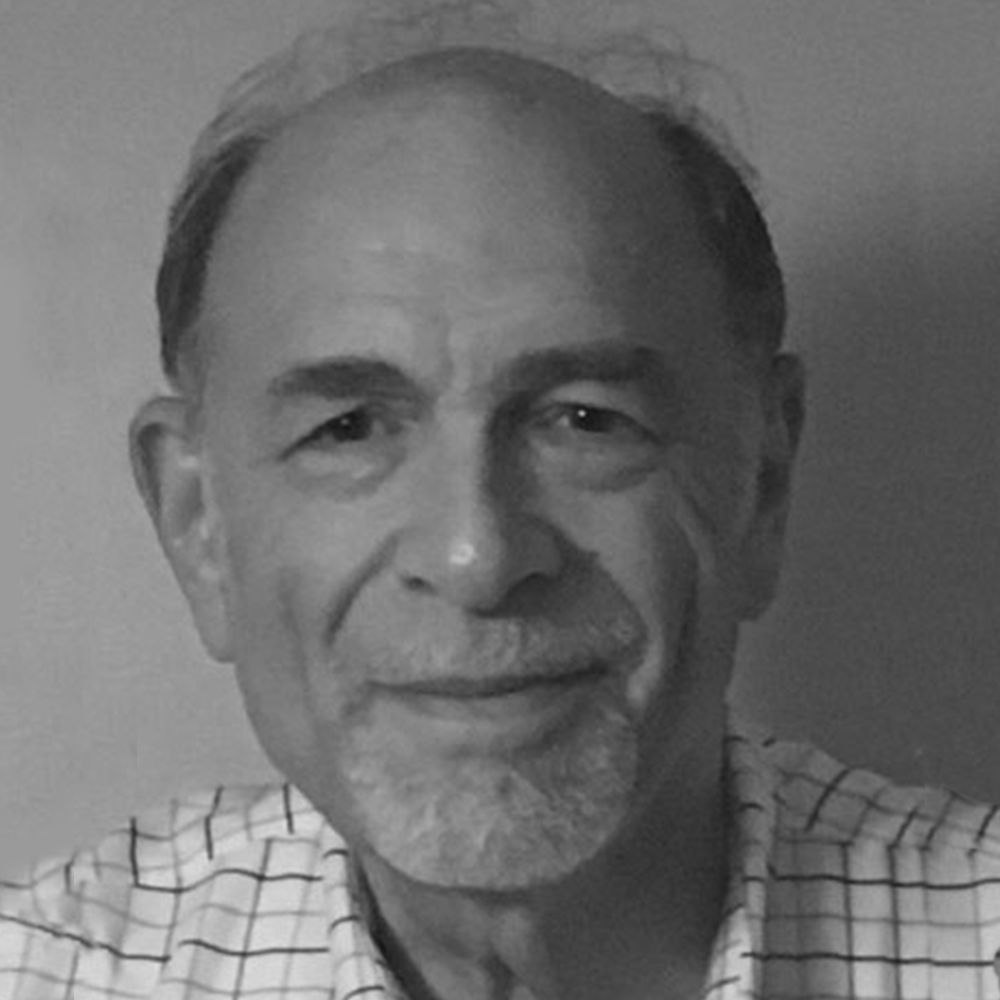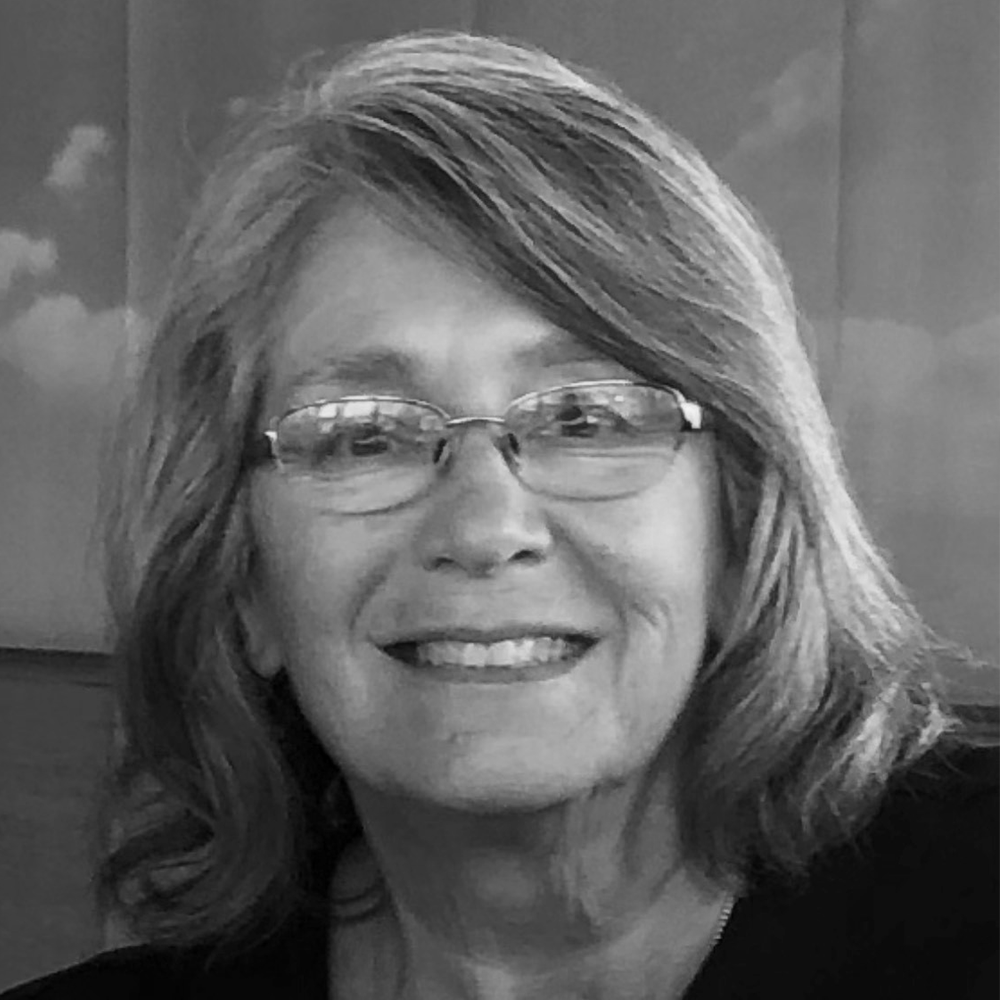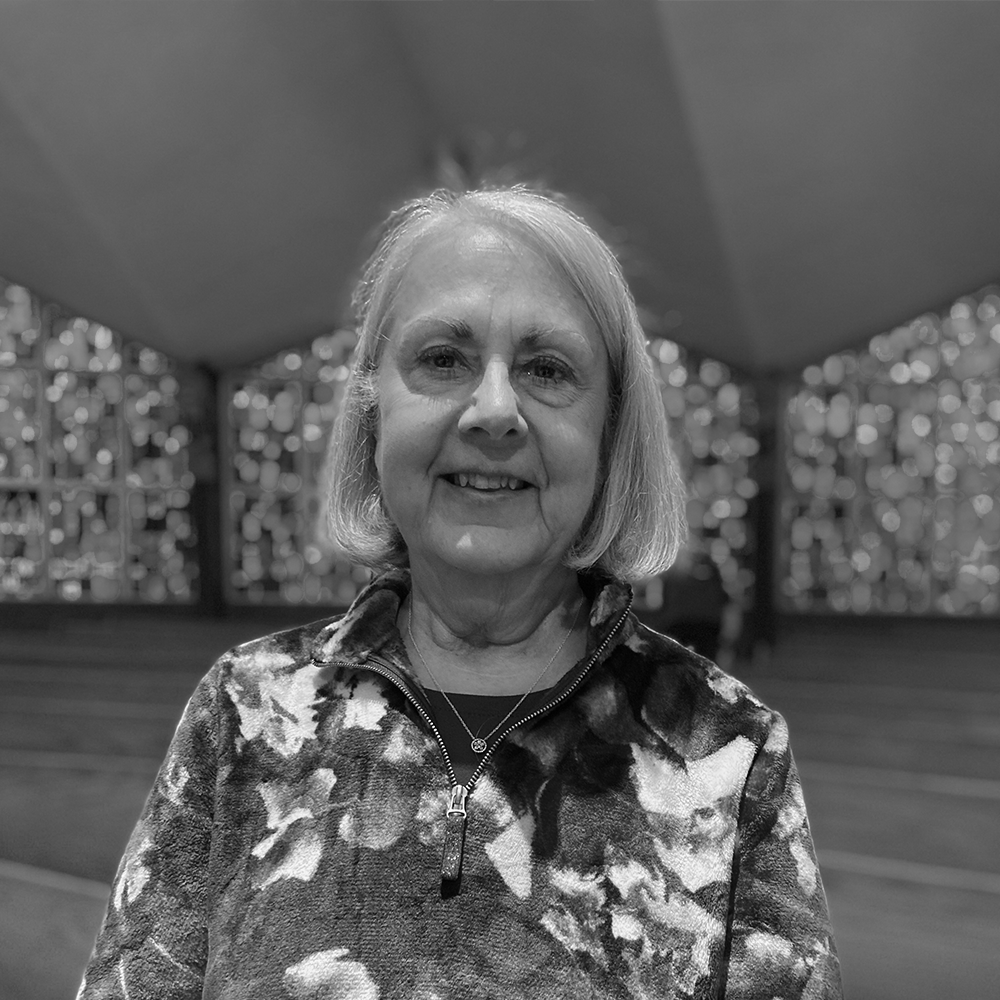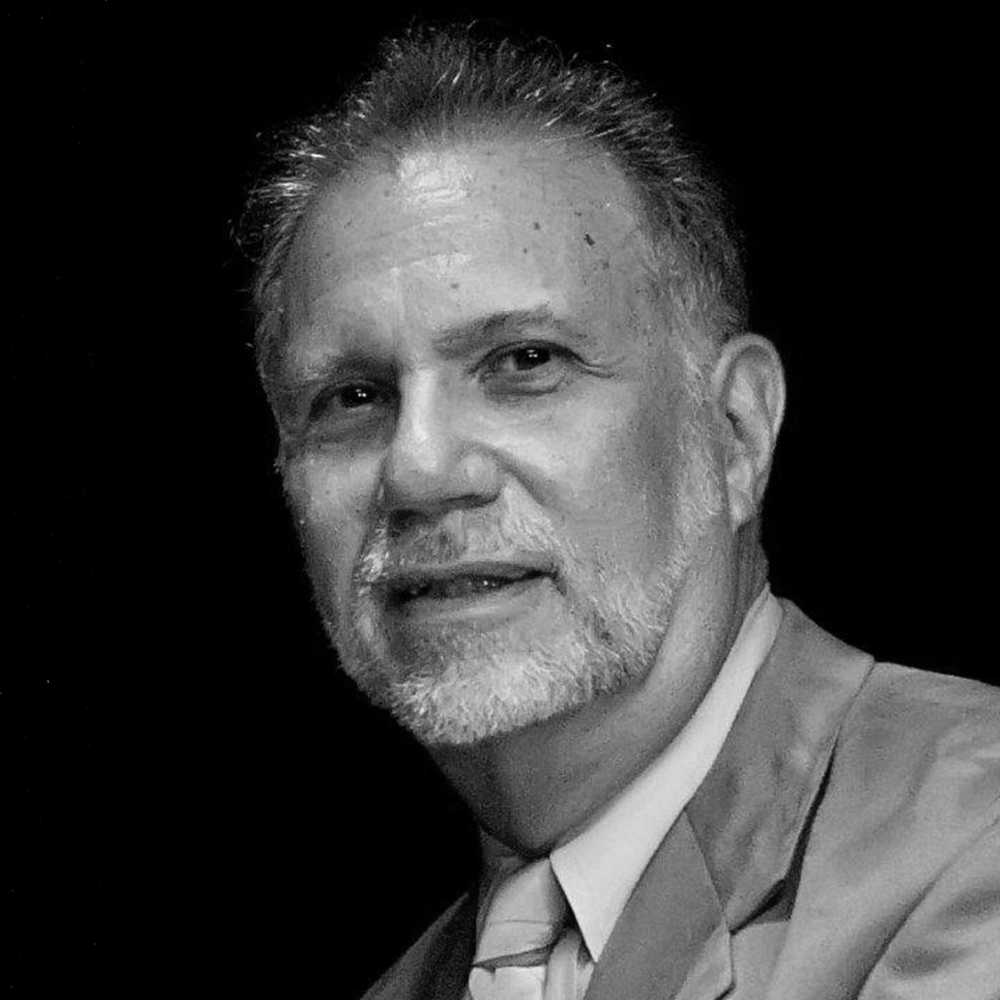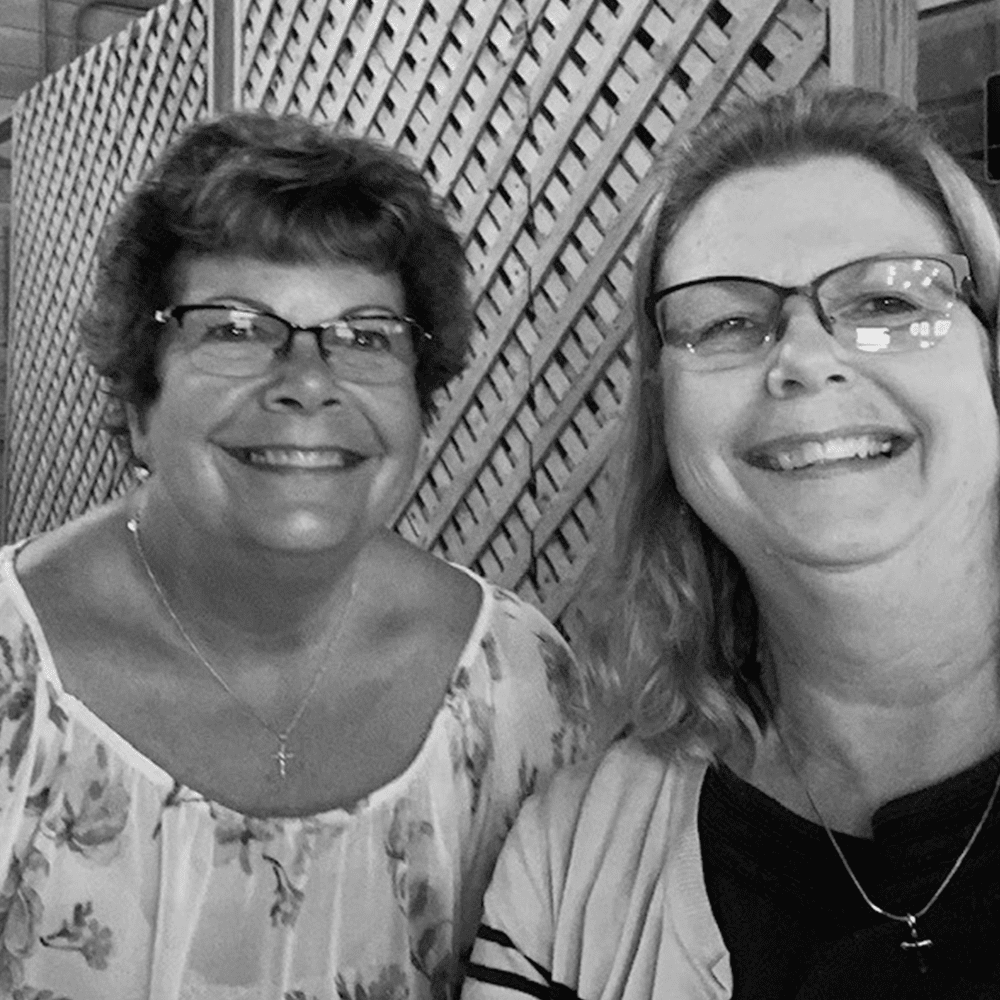
In 2023 the Dominican Sisters of Springfield celebrate a century-and-a-half of service, at more than 300 ministry sites worldwide, nearly a third of them within the boundaries of the Diocese of Springfield, where they first landed in Jacksonville on August 19, 1873.
That day, six sisters got off a train and were escorted to their first home in Illinois—a tiny cottage convent. They were anticipating a two-year assignment. Instead they discovered, at the end of those two years, that their pastor and the bishop knew something they were never told: they were meant to be independent from Kentucky and to open their own novitiate. This is how they embarked on a journey of ministry, service, and community that has left its mark globally—and locally—in this diocese which has been their home for 150 years.
How do we measure the impact of hundreds of Dominican Sisters over decades of service?
It seems impossible. Yet, here, some of our friends try to take that measure by sharing their experience of our story. Clergy and religious, lay women and men who have accompanied and labored beside us, friends from within our own faith tradition and others from without—each has something to say. We are humbled and heartened by their witness and invite you to hear their stories as we celebrate 150 years of ministry for the life of the world.
Dr. Bill Moredock
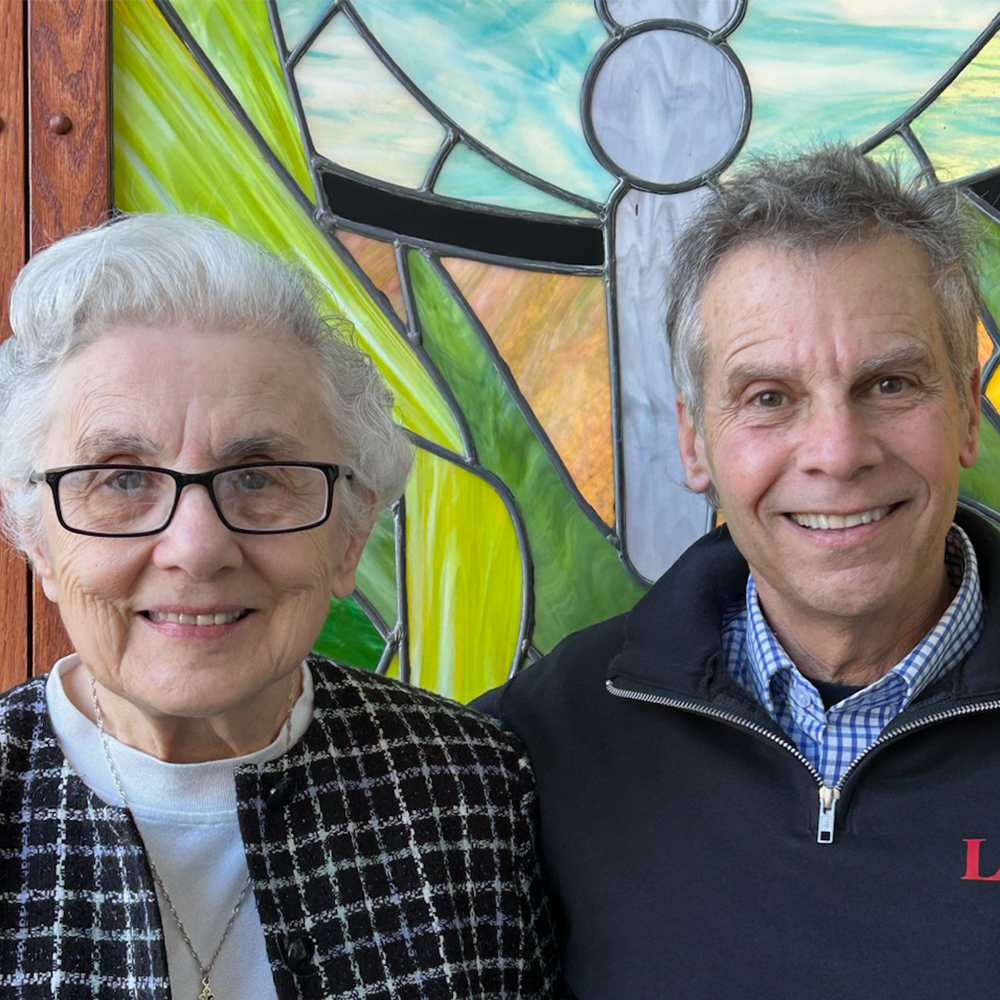
The Dominican Sisters of Springfield have had a profound impact on my personal and professional life beginning when I was a toddler. My first cherished memories of the Dominicans were the “home visits” of my aunt, Sister Mary Celestine, at the home of my grandparents. Back then, Sister Celestine (we call her Aunt Darlene), was allowed three consecutive days each summer to visit with her parents. She would arrive early morning and depart before dark. She had to be back at the motherhouse before the streetlights came on. She also had to have a companion sister on the home visit. It was truly a celebration, and in our case, an Italian celebration in which all of my aunts, uncles, and cousins came together to visit with Darlene and each other. In those days, Sister Celestine taught at Little Flower School, and I got to be in the same school for first grade where I had two Dominican sisters as my teachers.
The next chapter of my education was at Christ the King School where Dominican Sisters staffed most grade levels. At CTK my behavior and work ethic were less than stellar. I credit two Dominicans for turning my young life in the right direction. Sister Mary Dominic Joerger, my principal, and Sister Thomas Margaret Gallagher, my 7th grade teacher, never gave up on me and brought out my potential as a student. Without them, I would never have had the academic success that I would experience at Griffin High School and Notre Dame.
My professional life has been, and continues to be, touched by Dominican Sisters in remarkably positive ways. As a graduate student in San Diego, the Springfield Dominicans staffed Sacred Heart School in Ocean Beach. Sister Francene Harbauer was principal, and she helped me professionally by hiring me as a consultant and allowing me to do research in her school for my dissertation. Her kindness and guidance meant so much to me as a Midwesterner so far away from home.
I returned to Springfield with a wife and two children back in 1990 to be closer to family. I was coming back as a clinical psychologist looking to continue a career I had started in California. Because of my experience working in Catholic Schools in San Diego, I decided to contact Sister Mary Paul McCaughey, principal at Sacred Heart-Griffin, and Sister Marilyn Jean Runkel, principal at St. Agnes, to discuss possible provision of psychological services in our Catholic schools in Springfield. Both sisters saw something in me that they thought would benefit Catholic students in Springfield and my career in the Catholic schools was established. I would spend the next 27 years on the staff of Sacred Heart-Griffin and as a consultant to Springfield area Catholic elementary schools.
During my 33 years in Springfield at SHG and Little Flower School, I have treasured my work along side Sister Mary Paul (too briefly), Sister Kathleen Anne Tait, Sister Margaret Joanne Grueter, Sister Marilyn Jean, and Sister Katherine O’Connor. Along the way I have been mentored by Sister Maristella Dunlavy and Sister M. Joan Sorge.
As the current principal of Little Flower School, I have the great privilege of following the outstanding leadership of Sister Pauletta Overbeck, Sister Noel Plummer, Sister Francene, Sister Rose Miriam Schulte, Sister Joan, and Sister Paul Mary. I definitely regard Little Flower School as a Dominican school as well as a diocesan school, and we honor the legacy of 113 Dominican Sisters who served here over the years.
No one is sure where the Holy Spirit will lead over the course of life. I am looking forward to continuing a journey which has allowed me the opportunity to impact many lives over the years. It all started out on those magical summer home visits in my grandma’s basement many years ago. I would never have envisioned the personal and professional interconnectedness between me, my family, and the Springfield Dominicans over the years. I sincerely hope that my blessed relationship with the Springfield Dominicans will continue for many years to come.
Dr. Bill Moredock is principal of Little Flower School in Springfield and a licensed clinical psychologist.
Eliot Kapitan
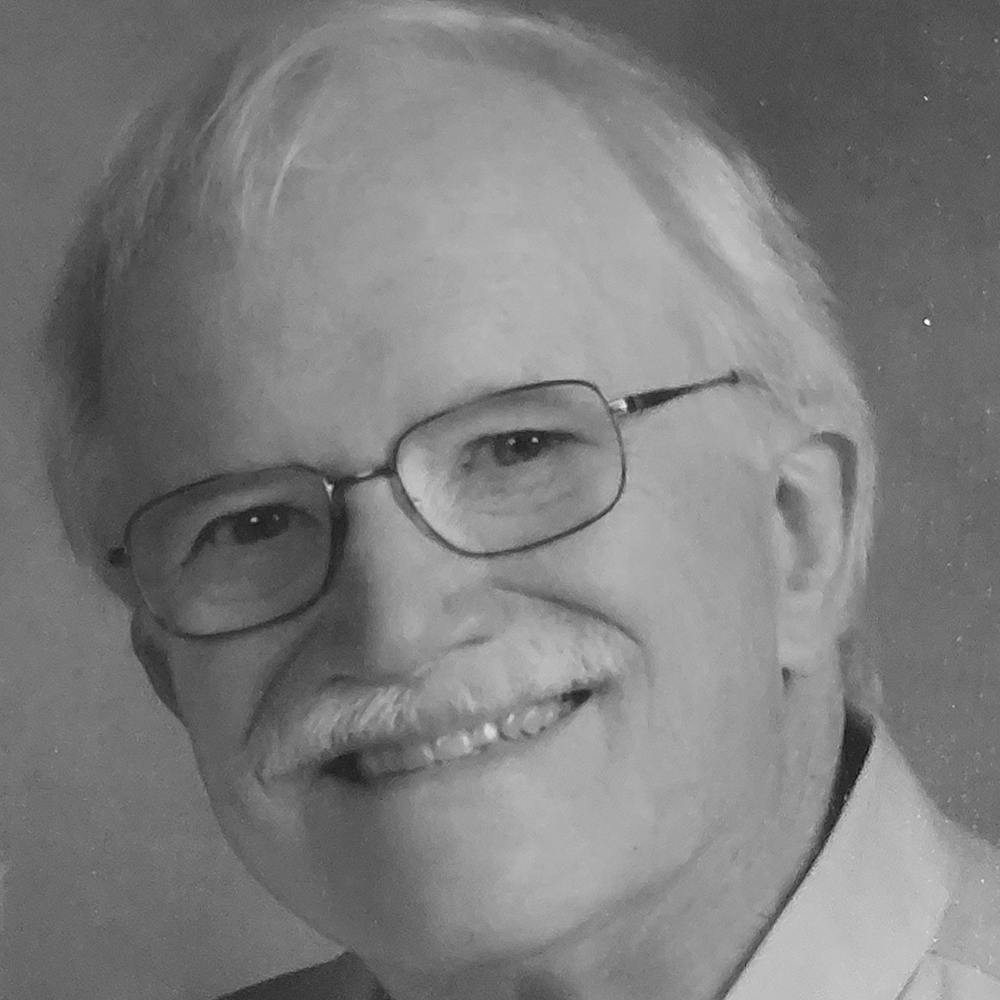
Years for Ministry and Prayer
by Eliot Kapitan
We started on the same day. Sister Beth Murphy, OP, began her work in the diocesan Office for Communications on 01 August 1988. This writer began in the Office for Worship overseeing the baptismal catechumenate and the new edition of Rite of Christian Initiation of Adults. Though we were separated by the parking lot/play ground on the cathedral campus, we were not apart in our vision for ministry or love for the Catholic Church. We have stayed connected through emails, infrequent meetings, and her regular column in the Beliefs section of the Sunday edition of the local paper.
Sister Beth asked me to write on the impact Dominican Sisters of Springfield have made in prayer, spirituality, and liturgy. There have been uncountable connections over thirty-nine years with these religious women in parish, school, and diocesan ministries. Here are five more with whom I often dealt in my own diocesan work.
Years Fostering Worship, Prayer, and Liturgy
Sister Kathleen Cour, OP, was the second director in the Office for Worship, serving from 1986 to 1998. She also oversaw the work of the Commission for the Liturgy with its four sub commissions.
Worship abounded. The annual Music Ministry Days served 500-plus participants. Other workshops took place with each new edition of a ritual book. Advice on parish church building and renovation was a collaborative effort with other diocesan agencies and the parish to ensure the best plan for that place consistent with the liturgical reforms. Care was given to the annual liturgies with the bishop, to requests from parishes on almost anything, to the quarterly Liturgy Newsletter, to guidelines on ritual practice, and to regional and national work with colleagues in other worship offices.
Sister Kathleen and I are the same age. We spent our elementary years praying the pre-Vatican liturgy with that Missale Romanum and learning the Mass settings of the Kyriale. We spent high school years during the four sessions of the Second Vatican Council and dealt with the gradual changes to liturgy through college, graduate school, and early years of parish ministry—she in Illinois, I in Louisiana and Texas. In our work together, we shared much in common: the importance of consultation with parish leaders, fidelity to the liturgy, teaching the faithful, and a vision that good liturgy builds up faith and shapes what we believe. We also shared a kinship with the Chicago Cubs. She could listen to the game and still do her desk work. I had to rely on the box scores and save game time for the weekends. This was the less than stellar part of our work together.
Sister James Marie Pallas, OP, was the first director of this office, serving from 1975 to 1986. I met her during regional and national events while I worked in a diocese in Indiana. She came to those meetings prepared for the tasks at hand. In later years, she managed the book store for Sacred Heart-Griffin High School. When my son was enrolled there, we would visit and talk about liturgical issues while getting resources for the next semester.
Years Fostering Parish Ministry
Sister Phyllis Schenk, OP, was appointed the first Parish Life Coordinator, with some trepidation, by Bishop Daniel Ryan. The concern was not with her competence but with the reaction by parishioners in not having a resident pastor or a full-time priest. Her duties entailed doing almost every item a pastor would do except preside over the sacraments. She ably served at Saint Mary of the Assumption Parish in Ste. Marie which included Saint Valentine in the Bend from 1986 to 1994. After a sabbatical and other assignments, she returned to be Parish Life Coordinator for Resurrection Parish in Illiopolis from 2010 to 2017.
Sister Marie Vianney Trutter, OP, was the Parish Life Coordinator for Immaculate Conception Parish in Shelbyville from 1995 to 2004. The original church was downtown and suited the residents in fall and winter. But summer brought hundreds more with Sunday assemblies spilling out on the steps and sidewalks and parking spaces taking part in Mass through open doors and windows. She oversaw the details of a new church building by working with parishioners (who cherished the old space) and with diocesan personnel. Building is always an arduous task. Building a new church is harder still, for it always shapes the People of God, the Church, in profound ways. She was up for the task. The new complex featured a large enclosed gathering place separated from the worship space by floor-to-ceiling windows that could be slid back in summer for assembles double in size.
Sister Mary Jean Trager, OP, was the Parish Life Coordinator for Saint Katharine Drexel Parish in Springfield that included the two churches of the former Sacred Heart and Saint Patrick Parishes. She served two diverse communities, now a new parish, from 2006 to 2015, and enhanced the liturgical music ministry whose choir often served during diocesan events. She followed this ministry as Parish Life Coordinator for Saint Cabrini Parish in Springfield with an aging population until 2017. She was also active in city-wide efforts for housing, inclusion, and care for the poor and disenfranchised – ministry that put prayer into action.
I found it a joy to work with all of these women. They were not reticent to ask the Office for Worship and the Catechumenate for help. I was glad to assist in ways that would deepen the liturgical life in these places.
Years of Blessing
The Dominican Sisters of Springfield have been a blessing these one hundred and fifty years to the people of the diocese. They have enhanced school learning for students that included faith formation and prayer. They have labored in parish ministry of teaching, sacramental formation, care for the sick and homebound, and administration. They have served in regional and diocesan service throughout the counties that make up the Diocese of Springfield in Illinois. And even in retirement, they find suitable ways to serve and daily ways to pray for us all.
Eliot Kapitan oversaw liturgy and the baptismal catechumenate for the Diocese of Springfield in Illinois and taught in both the Lay Ministry and the Deacon Formation programs. In retirement, he wrote Unfolding the Mystery of Christ: Sunday by Sunday Formation of Catechumens, Liturgical Press, 2020. He and Jacqueline live and Springfield, are parishioners at Little Flower, and dote, now, on their two young grandsons.
Father Richard Chiola
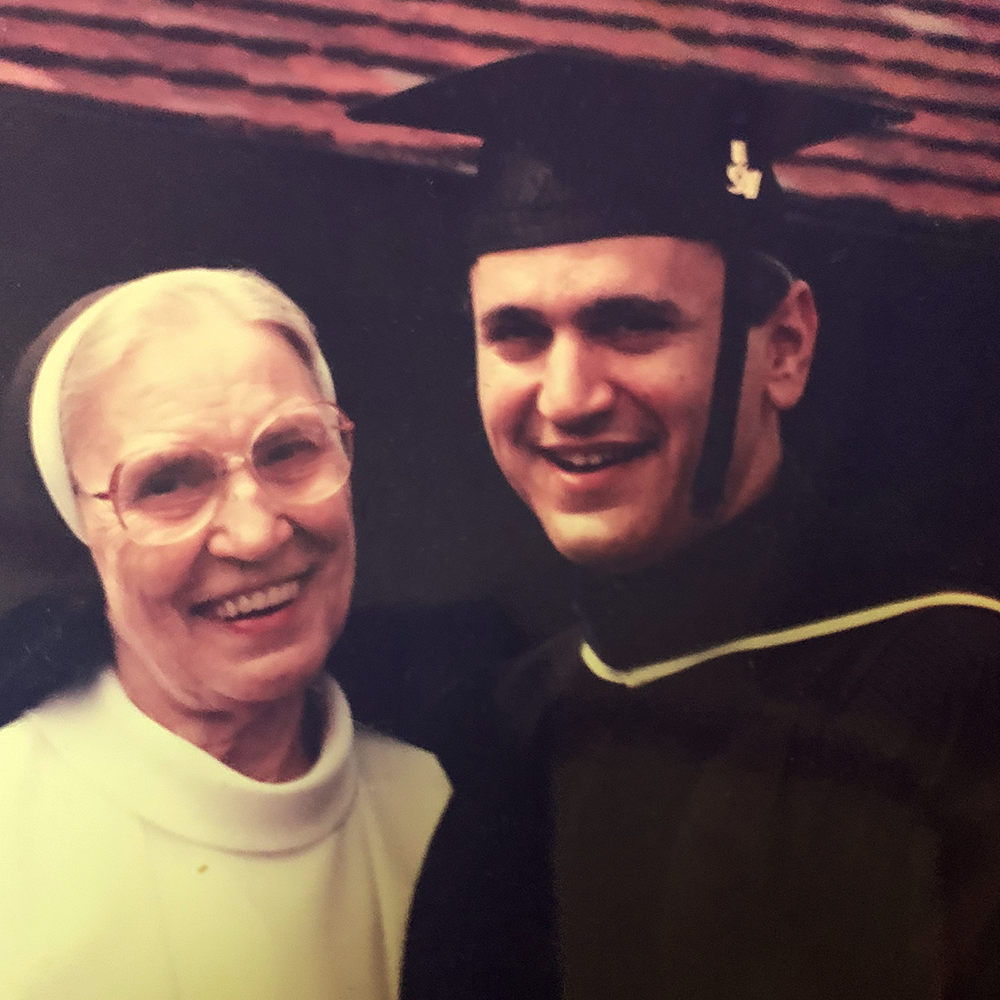
The picture is from May 1991, the day I received my Ph.D. in Historical Theology. Pauletta was along for the hooding ceremony and dinner.
In the fall of 1957, I began seventh grade at Little Flower School in Springfield. Previously, I attended Sacred Heart grade school taught by Franciscan Sisters. My first Dominican was Sr. Ruth Marie who was very kind and gentle, and a stickler for diagraming sentences. Sister Pauletta was the school's founding principal and my eighth-grade teacher. She arranged with our mothers that we would take ballroom dancing at the YWCA; so that when we got in high school, we would be prepared to attend dances. I remember the enthusiasm with which she taught every course, especially her notes for religion class. I never saw the like until I was a graduate student in seminary theology nine years later.
After my ordination, Sister Pauletta, who had been serving in California, returned to Springfield, and we became fast friends. She shared with me much about her life and spiritual journey. We frequently spoke about our desire to grow closer to Jesus. In 1991, I received my doctorate in historical theology, and Sr. Pauletta traveled to St. Louis for the ceremony and dinner. Before her death, as she let go of everything in her room, she gave me the picture we took that day. In a tiny hand, she had written a note mentioning that I had been a student at Little Flower. She was very proud of all her students. In 2006, I decided to dedicate my book, Catholicism for the Non-Catholic, to her because of her influence on my understanding of our shared faith.
In the Spring of 1990, we traveled together to visit her Sisters at their St. Dominic Hospital in Jackson, Miss. As we neared our destination, Sister Pauletta asked if I would mind taking a side trip to see a friend of hers. I almost lost control of the care when she mentioned her friend's name, Sister Thea Bowman. Sister Thea, who was dying of cancer, was already known for holiness and years of evangelization through music and preaching. Sister Pauletta introduced me as her former students who was now a priest. Although we had been instructed not to touch her because of her intense pain, Sister Thea reached out and held my hand as she intensely gazed at me. It was a prolonged moment of intimate prayer. Sister Thea is currently being considered for canonization.
Sister Pauletta had a life-long devotion to St. Thérèse of Lisieux and her "little way" of doing small things with great love. She was always affirming and wise in her advice. As she approached her late nineties, she asked me to preach her funeral homily, and I did so but not until she was 101. Her friendships over the years included hundreds of students and persons to whom she gave consolation and spiritual direction. They also included a couple of criminals, many Protestant and Jewish people, and untold numbers of the marginalized in society. She was especially compassionate to persons of color. Several homosexual men and women, some of whom had been her students, received her loving care. Some of her favorite sayings were: Dare to be Different, Don't let them steal your peace, and Just Love!
In my second year at community college in 1965, I took the role of Ebenezer Scrooge in a musical version of A Christmas Carol. Some said it was type casting. The production was presented at Sacred Heart Academy. The sister who conducted the music died this last fall. The one who directed the actors was Sister Virginia Dever (AKA, Sister John Thomas, whom everyone at the time called JT). She was a wonderful director, and I still laugh at some of her comments during our rehearsals. In 1989, Sister Virginia was teaching religion in Hammond, La., at St. Thomas Aquinas High School which the Springfield Dominicans had recently helped found. She invited me to teach a few classes when I was visiting friends who lived in the same town. I ended up coming back and giving a retreat to the sophomore class the following spring. It was always a joy to spare with her quick Irish wit.
During the COVID lockdown, I was reading some contemporary books of christology, our understanding of Jesus the Christ. A Dominican sister who had attended a class on cosmology, the science of cosmic evolution, asked me a question about Christ, his divinity, and our Catholic faith that we too are sharing divinity. That question made me wonder if I could write a book about the subject that my great-niece, who loves science, might enjoy reading. I discussed the idea with Sister Ann Regina, who for many years had taught ongoing formation to her sisters. She and I had been discussing her current course on contemplation, and I admitted I knew little about cosmology. Sister suggested I speak with Sister Sharon who spent the last thirty years studying and teaching the subject. Sister Sharon and I have worked over the last two years to write a book on cosmology and Christ and are currently looking for a publisher. We decided to dedicate the book to Sister Ann Regina who at 101 years of age died in 2021.
Fr. Richard Chiola, ordained 1972 for the diocese served in several parishes, taught theology in three graduate schools and counseling to physicians in residency to be psychiatrists, was president of a national organization for the ongoing education of priests, theological consultant to Hospital Sisters Health System, and spent a decade as a Trustee of the US Catholic China Bureau.
Loralean and Johnetta Jordan
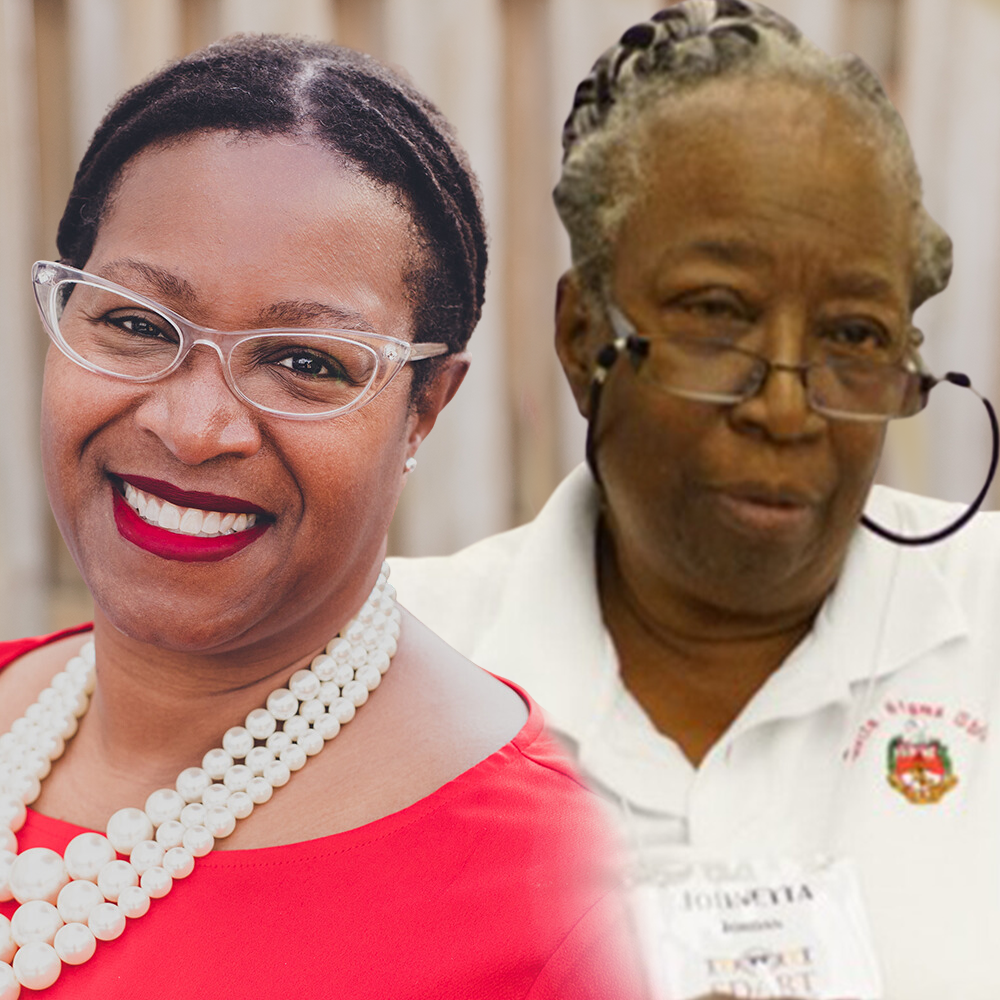
If we were allowed just three words to explain the impact of the Springfield Dominican Sisters 150 presence in central Illinois they would be relationship, education, and community.
Mom’s relationship with the sisters goes back to 1965 when she and Dad first moved to Springfield. She likes to tell the story about Dad asking a Catholic neighbor where he went to church. When he said “St Pat’s” Dad inquired further—and the parish has been our family church home ever since.
From the moment they first walked in the door at St. Pat’s the Dominican sisters were the first to help them feel at home in Springfield. Around the nucleus of the parish and the school, my sisters and I thrived. In addition to going to school there, at one time or another Dad and all three of us girls were involved in the choir, and that choir became our family. A web of relationships developed around the choir that has sustained us throughout our lives.
My sisters and I attended Sacred Heart Academy/Sacred Heart-Griffin, too. Still to this day, though I live in Minnesota, it feels like I meet SHA or SHG grads everywhere I go. What I notice, whether I know those grads or not, is the feature we have in common: our desire to give back. That ethic of service was instilled in us by our parents and reinforced by the Dominican Sisters.
At a recent family gathering my sister Jennifer shocked us all when she divulged that at one point in her life she considered becoming a sister. It was the witness of the Springfield Dominicans and their commitment to Catholic Social teaching and the importance of working to make change in the world that inspired her that direction. Ultimately Jennifer made a different choice for her life, but what hasn’t disappeared is her commitment to working for the common good, so impactful was the Dominican DNA.
I, too, am proud to tell people that I was “Dominican raised.” No one can take that education away from me. It prepared me for life. It was phenomenal.
The Dominican Sisters known as great educators, they are just as great at creating community. Mom recalls that when Michael Brown was murdered by police in St. Louis in 2014, Sister Mary Jean, who was pastoral administer at St. Katharine Drexel Parish at the time, welcomed parishioners to gather for discussions. These discussions were an anchor for Mom, Dad, and others in the parish who needed a place to process their experience of the murder, and so many similar tragic and traumatizing experiences of the Black community ever since.
Perhaps the single most impactful ministry of the Dominican Sisters in my lifetime is their commitment to the work of antiracism. Mom and Dad were with them from the beginning, nearly twenty years ago, when the sisters made a binding decision at their general chapter to commit to becoming an antiracist institution. It’s difficult to see the fruits of antiracism work, and for that reason many people give up before they start. But I like to tell everyone who will listen that if the sisters can make the commitment to do the personal and institutional work to dismantle the structures of hate in our society, so can they.
Mom and I are deeply grateful to the sisters for their presence in our lives and their commitment to being in relationship across boundaries, education, and community building.
Loralean Jordan is a member of the Church of St. Peter Claver in St. Paul, Minn., where she is currently the director of the gospel ensemble. She is the co-chair for the Dignity of Black Lives/Black Lives Matter, a subcommittee of the National Social Justice Committee for the Knight of Peter Claver and Ladies Auxiliary. Loralean recently completed her first year on the Board of Catholic Charities of St. Paul and Minneapolis.
Johnetta Jordan, a Springfield Dominican associate, was a founding member of SDART, the Dominican Sisters Antiracism Team. She and her husband Leroy (d. 2020) raised their children at St. Patrick’s Parish
Sister Jane Boos, SSND
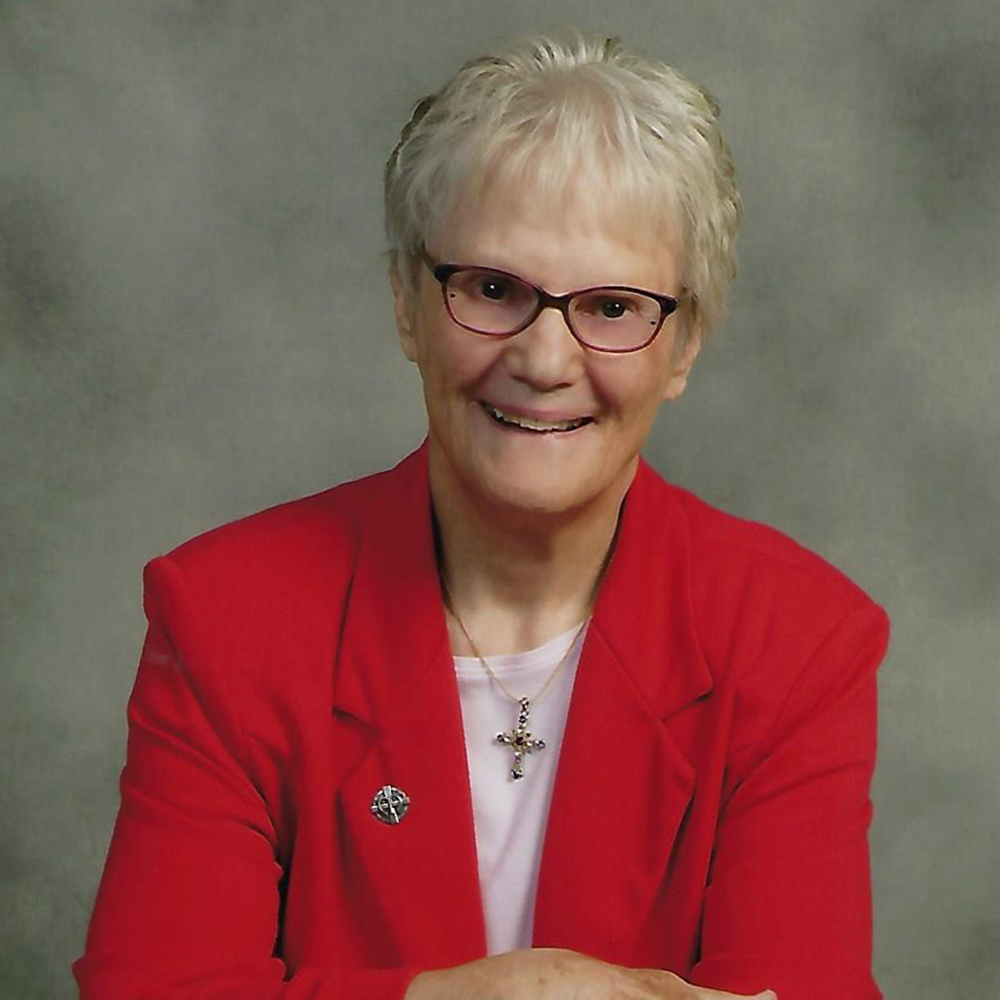
I am a religious sister for over 60 years and know so many of the Dominican Sisters. I have shared in their ministries and they have assisted me in my ministry; most of all I love and respect them and call them ‘friend.’
As a teacher, I first met the Dominicans in Quincy, Ill. As an employee of the Diocese of Springfield in Illinois I met and shared ministry with many of them. Rather than name all of the Dominicans whom I call friend, I would like to share the multi-faceted ways in which they have shared their time, talent, and treasure with me. Yes, sharing talent is indeed ‘treasure.’
The Diocese of Springfield in Illinois promoted a consistent ethic of life and, as I developed social justice ministry outreach, the Dominicans were inspiration, wisdom, and partner. Jubilee Farm and Sister Sharon Zayac were helpful as we developed Rural Life Ministry. Her knowledge and spirituality laid a wonderful foundation and continues today.
The Dominicans were also prophetic in laying the groundwork for addressing the sin of racism. They put money, time, and personnel into this project. I personally participated in seminars and recognized the need to help raise awareness.
I was blessed to have served under three bishops during my years working at the Diocese of Springfield in Illinois. During some of those years, sisters were asked to be parish coordinators. Some Dominican sisters accepted this invitation and gave a wonderful example of the value of women leadership in the church. They were accepted and loved by the people of the parishes.
I also loved and respected the invitation to lay men and women to join them as associates. Those who joined them shared in their spiritual as well as pastoral outreach. Today, many other communities of religious sisters have associates also.
As you can see from my story, the Dominican Sisters are a light in the darkness to those privileged to know them. I congratulate them and pray with them for God’s continued blessings upon them and their ministries.
With gratitude,
Sister Jane Boos, SSND
Effingham, Illinois
Bishop Kevin Vann
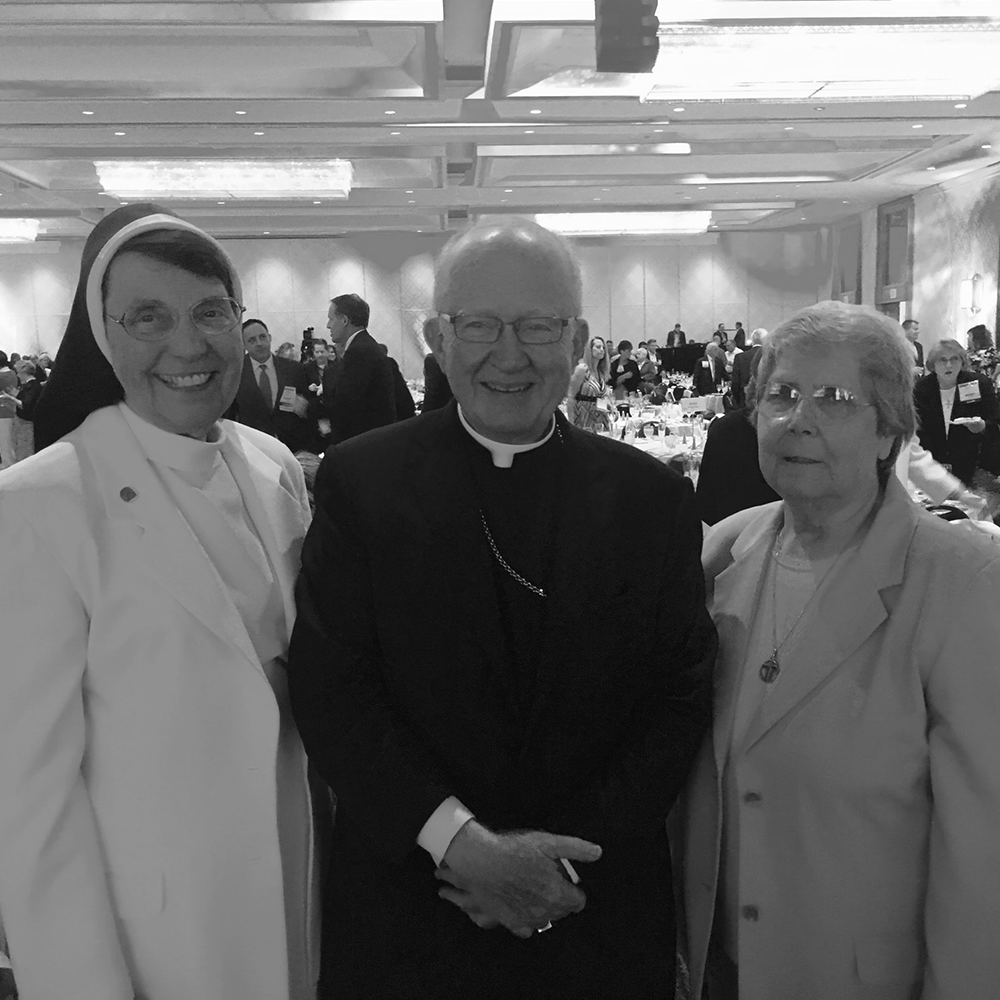
Dear friends and Dominican Sisters and all,
As I write these words, I also have two homilies that I have been writing: The first one is certainly more difficult, as it is my homily for Mass today on the Christ Cathedral campus in memory of Bishop David O’Connell, who was murdered in his home in Hacienda Heights. He was a friend to so many, including myself. The second will be for Mass at the Religious Education Conference in the Anaheim Convention Center this coming Sunday morning. Both, of course, are an integral part of the celebration of the Eucharist, and the very word “Eucharist” of course means “Thanksgiving.” Writing these words, I call to mind also the words of St. Paul in 1 Thessalonians 5:18 when he enjoins us to “Give thanks to God in all circumstances; for this is God’s will for you in Christ Jesus.” I also call to mind these words when I think of the upcoming celebration of the 150th anniversary of the founding of the Dominican Sisters of Springfield.
MEMORIES
The very idea of thanksgiving is certainly woven into the lives and ministry of the Dominican Sisters, especially as it has been woven into the lives and ministry of the Vann and Jones family, and all of those in Springfield whom I know and remember with great love. I will reflect here on a few memories about how the Dominican Sisters played a formative role in my life. For starters, the photo accompanying this is of my aunt, Sister Margaret Sienna Jones with Sister Francis Joseph Buck, who was a primary teacher at St. Patrick’s in Springfield for so many years. I do not mean to leave anybody out, but they all come to mind in the Dominican motto of “veritas,” or the “sharing with others the fruits of your contemplation.” The personal moments which I will share certainly are framed in the celebration of your 100th anniversary in 1973 when I had the chance to visit with Sister Charles Maurice who had taught me in 1962 at St. Agnes and Sister Mary Jeanine McGinley who had been my kindergarten teacher there. I was blessed to keep up with both sisters for many years. I reminded Sister Charles Maurice Diver one time that one of our classmates had the temerity to tell Sister Marita McGrath that she was not fun like Sister Charles Maurice! Twenty years later, in 1993, I was with you to celebrate the 100th anniversary of the transfer of the motherhouse to Springfield, and I remember Sister Agnes Clare Graham coming up the old motherhouse drive in horse and buggy!
LET THERE BE MUSIC
My life was certainly strengthened by the gift of music. At St. Agnes we learned the choral piece Let there be music from the fruited plains and Thank the Good Lord it’s Friday! At St. Agnes in Springfield this certainly came from Sister Herman Joseph (Annarose Yakstas), Sister Mary Cecilia Duchene, and above all Sister James Marie Pallas, with whom I studied for eight years! She became a good friend and years later I visited her at the motherhouse and told her that I could still play the piano. She responded: “But do you count?” (That had never been a strength of mine!) It was my aunt, Sister Margaret Sienna, who taught me my first year, helped to instill in me a love for music, and helped me realize this was a God-given talent that I had received. The musical skills we learned at St. Agnes were certainly strengthened by our participation in the Springfield grade school music festivals (held at the old armory) under the direction of Sister Helen Zita Hackett (passed away way too young in 1968) who was the music teacher at the Cathedral. Sister Mary Albert Quinn was another musician friend of mine for many years. I have memories as well of the community members who taught music and who would speak about their summer music studies at Alverno College in Milwaukee and the enjoyment of taking the train there each summer.
SUMMER SCHOOL
Speaking of summer school, I took art three different summers at the academy under the successive direction of Sister Mary Mark Rund, Sister Maureen Flynn, and Sister Alverna Hollis; and typing from Sister Mary Aquinata Dooling!
GRADE SCHOOL
I was blessed to have had a sister in every grade at St. Agnes, including Sister Mary Michaela Collins who taught us 60 first graders to read, which became the key for all else!
HEALTH CARE
I was grateful to have been a guest at St. Dominic’s Hospital in Jackson and am proud to call Sister Mary Dorothea Sondgeroth a friend and to be with her when she was honored by the Catholic Health Association.
FAMILY
It was not unusual for Springfieldians of my generation to have an aunt who was a Springfield Dominican. I think especially of the Bernet family and Sister Regina Marie. In the days in which August was the time for the Dominican Sisters’ home visits, Sister Margaret Sienna would be home at the same time Sister Maria and Sister John Vianney, both Ecks would be home with their family next door to the Jones family. And just yesterday, I was speaking with Mike Suddes, a classmate of mine from Griffin High School, and the nephew of three siblings: Msgr. James Suddes, Sister Mary, and Sister Imelda.
My memories of the Springfield Dominicans still form the foundation for my life and ministry. They helped me to make the connection and friendship with the Dominican Sisters of Mission San Jose here in California. I am sure that I have left some names out, but this writing is both a work of love and stream of consciousness!
MISCELLANEOUS SPECIAL MEMORIES
I was asked to help (as an eighth grader) to direct traffic at the motherhouse when the departure celebration was held for the sisters who were missioned to Peru; and at about that same time, to help again with traffic for the funeral of Mother Ceslaus O’Connor, who, born in 1872, was certainly a link to the pioneer sisters.
During our grade school years it was also special when the sisters would come out to the playground with us during lunch hour to play basketball and “four square”! I remember especially Sr. Maristella Dunlevy and Sister Mary Judine Hilbing from St. Agnes and Sr. Mary Francella Vyvermann and Sister M. Phelan from St. Patrick’s!
In more recent years, when I was still in Springfield, those of us who were Griffin alumni would get together for lunch once a month. Occasionally we would meet at Henry Manci’s tavern (a graduate of Little Flower, I believe.)
One occasion we were joined by Sister Mary Paulettta Overbeck who had been principal for a number of years at Little Flower. You could imagine the reaction when Sister Pauletta and I walked into Henry’s tavern at the same time!
Our years visiting my aunt, with my family, at St. Patrick’s in Springfield, I came to know long time community members Sister Mary Eugene Smith, Sister Mary Serena Connolly and Sister Mary Magdalen [don’t know last name] and our family visits were always a lot of fun with them. I also began my piano lessons with my Aunt at St. Patrick’s at the Convent on Saturday mornings. And I even learned my first words in Spanish from my fourth grader teacher at St. Agnes in Springfield,
Sister Mary Chrysostom Brady taught us how to say “Bounce the ball three times” in Spanish which I still remember (and use) to this day! She was, I understand a niece to Sister Mary Paul Brady.
I also understand that she later returned to her baptismal name as Sister Patricia Brady when teaching at Marian High School in Chicago, and later left the community.
I would like to conclude with some words of Mother Jeremiah and the beginning of the Community’s 100th anniversary.
“We thank him for all things–all the joys and all the sorrows. In this Eucharistic celebration honoring His Mother, we offer our love, our praise and our Thanksgiving in union with the infinite love, praise and thanksgiving offered by God-made-man, and we ask God to let us see His light so that we can walk in His spirit. Let us pray that each of us can imitate Mary’s openness to the Spirit of God. Because of this openness she was able to bring Christ to the world. We ask that by our openness to the same Spirit each of us may bring Christ into our own hearts and to those whose lives we touch.”
These words are meaningful for all of us today, in life and ministry. I am certain that I can say thank you on behalf of all of us of my generation who were taught by the Springfield Dominican Sisters.
With great love and thanks,
+Kevin Vann
Father John Doctor, OFM
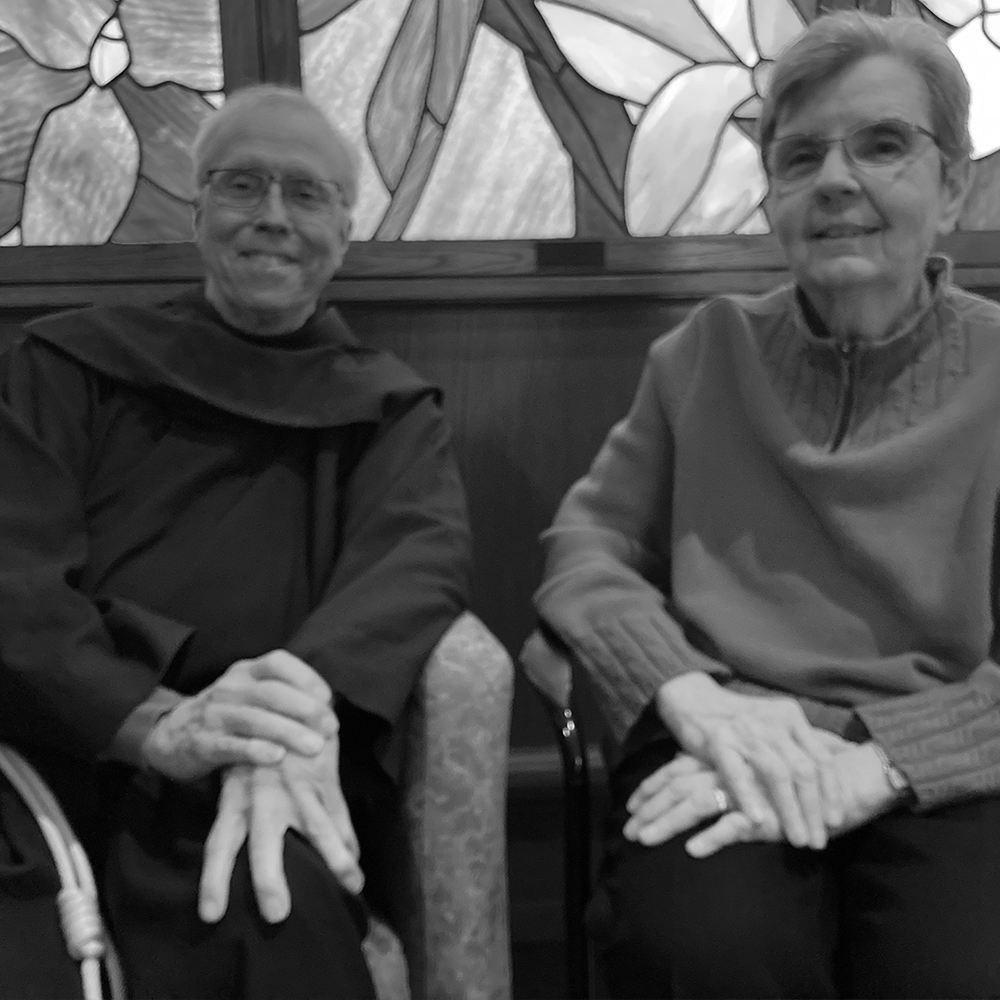
My first encounter with the Dominican Sisters of Springfield was in 1983. The sisters were teaching at St. Dominic elementary school and some sisters were attending Quincy University. My encounter came about when one of the sisters sought me out for spiritual direction. This began my ongoing connection and involvement with the Dominican Sisters. I experienced firsthand the kindred spirit between Dominicans and Franciscans. We share a common calling and passion to live and to preach the gospel—to become mirrors reflecting Jesus Christ in word and action—to a wounded world.
Over the years, I have had the privilege of witnessing the Dominican spirit in the education of young people at Sacred Heart-Griffin High School in Springfield, Ill., and at Rosary High School, Aurora, Ill., where my sister also taught. I am impressed with their educational philosophy of the holistic development of young men and women to be lifelong learners in the pursuit of Truth through prayer, study, and service—especially to our lesser sisters and brothers and those on the margins of society—and building up the common good.
I am inspired by their firm commitment to live out Gospel justice and peace and their prophetic call to each one of us to be instruments of justice and peace. Their commitment to be proactive in addressing systemic racism within the community, their ministries, and the greater civic community demonstrates their unity around a common cause. I have, likewise, witnessed their dedication to care for our common home and their efforts to raise people’s awareness of our interconnectedness and interdependency with our Mother, Sister Earth.
Some of the sisters have been involved with the Cursillo Movement at the Franciscan Retreat Center in Quincy. When the sisters are on a Cursillo weekend, their passion and witness to gospel life empowers laywomen and laymen in living out their baptismal call to become the Body of Christ within their own environments.
It is impossible to measure the life-giving impact the Dominican Sisters have had over these one hundred and fifty years. What I do know is that they remain a special gift and blessing in my life, for this diocese, and for the countless people that they have walked with over these one hundred and fifty years. Their faithfulness to making Christ visible by living a gospel life, in season and out of season, calls each of us to greater integrity as women and men who walk in the footprints of Christ.
May God the Father bless them.
May God the Son heal them.
May God the Holy Spirit enlighten them,
And give them
Eyes to see with,
Ears to hear with,
Hands to do the work of God with
Feet to walk with,
A mouth to preach the word of salvation with,
And the angel of peace to watch over them and lead them at last,
By Our Lord’s Gift, to the kingdom.
Amen.
Fr. John Doctor, OFM, Vice President of Mission and Ministry at Quincy University.
Jo Buckley
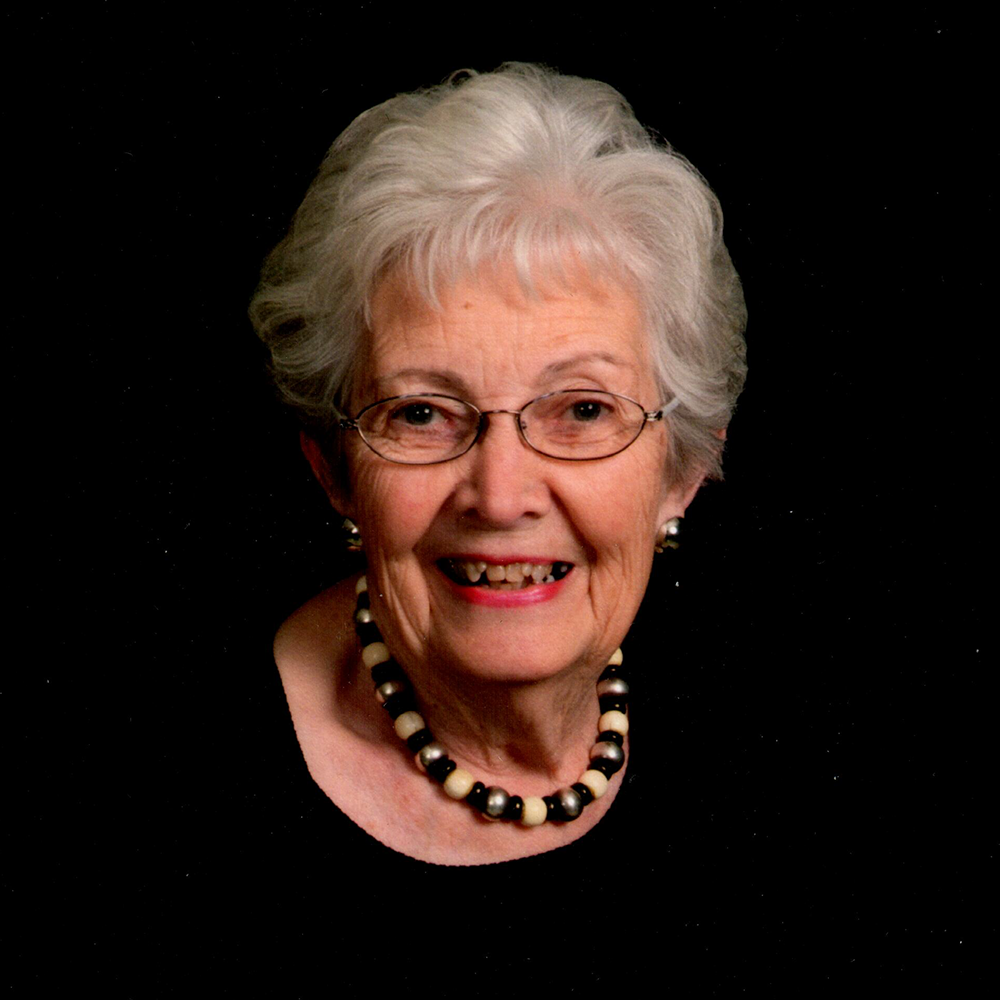
I attended School at St. Mary's Academy in Mt. Sterling from first grade through high school, graduating in 1948. (The high school was closed a number of years ago.) I was taught by Dominican Sisters all 12 years and feel like I got a good religious education as well as an all-around education to prepare me to go into the world.
We had a well-rounded education including extracurricular activities like school plays, gym, band, music, and piano lessons. I remember going to the sisters’ house after Mass on Sunday for my piano lessons until they had a room to teach in school. I think the sister who taught me was Sister Leo Marie.
When I got to high school, in addition to the required subjects I took business courses. In my junior and senior years, I took shorthand, which is no longer taught, typing, and bookkeeping. These coursed prepared me for my many years as a secretary. The sister who was my teacher for these subjects was Sister Mary Victor. She taught us to work hard and instilled in me the love of being a secretary.
I used these skills over the years working for lawyers, presidents of various companies, and civil service work, and in my last job as executive secretary for Sister Marilyn Jean Runkel, OP, at the Office For Catholic Education in the Diocese of Springfield in Illinois. In the nine years I worked in the office I was so happy to be working with and for Sister Marilyn Jean. She is a wonderful lady, very smart, very personable and very talented. We keep in touch often. She used her beautiful voice to sing at my mother's funeral. I thank God every day for all Dominicans I have had the privilege of knowing, and for the great influence they have had on my life. While working at the diocese I also met many other Dominicans.
Some of the other Dominicans I remember who taught me were Sister Marianna in grade school, Sister Mary Mercedes, Sister Mary Sixtus, Sister Mary Isnard, and Sister Mary Norberta, among others. Several students that attended school at St. Mary's in Mt. Sterling became Dominican Sisters, including one of my classmates, Sister Barbara Zarones. I also had a great aunt in the community, Sister Mary Rose Cronin.
Joan “Jo” Buckley lives now in Quincy but was born in Mt. Sterling, Illinois, in 1930 and has enjoyed a life-long association with the Dominican Sisters of Springfield.
Rabbi Barry Marks

I offer my fond and heartfelt congratulations to the Springfield Dominicans on the celebration of their one hundred and fiftieth anniversary. Their many years of service in our community and beyond are worthy of our deepest respect and admiration. I know that I speak not only for myself but for our local Jewish community as well.
I consider the sisters both good friends and neighbors. Temple Israel, where I served for four plus decades and where I continue to worship, is a block and a half from Sacred Heart Griffin and from the Dominican motherhouse. When my son was an infant, I used to enjoy taking him for a ride in his stroller through the beautiful Sacred Heart Academy grounds; this was before Sacred Heart and Griffin merged and even before the new classroom building was constructed.
Over the years I have enjoyed a congenial relationship with the sisters. I have been invited as a guest to religion classes at Sacred Heart to teach about the Jewish background and roots of the Christian faith and to shed light on what distinguishes our religious traditions from each other but, more importantly, on the many things we have in common. I have on occasion been asked to serve as a consultant on musicals that were presented at SHG; Fiddler on the Roof is the one show that most readily comes to mind. In more recent years, we were pleased to have our Religious School students from Temple Israel and Temple B’rith Sholom visit Jubilee Farm and learn from the sisters living and working there. It is an enchanted place where it is possible to be at one with nature, to focus on the spiritual dimension of our being, and to envision a more sustainable way of living. I recall a visit by a group of sisters to our Temple, where I spoke with them about our Jewish traditions and showed them a Torah scroll. One of the sisters was from Iraq and was thrilled to see that the script used in our scrolls was the same one used in her native language, Aramaic. When the sisters were arranging for a service of reconciliation in their chapel for women who had left the order, I was honored to be invited to sound the shofar (ram’s horn), whose call in my tradition is a summons to repentance and an acclamation of God’s sovereignty.
The mission of the Dominican Sisters—to preach, to teach, to commune with God, to care for creation, and to fight for justice in the here and now—resonates with me and with the lessons I have learned from the Hebrew Scriptures. I hear echoes of Deuteronomy (“You shall teach them diligently to your children”; “Justice, justice shall you pursue”) and of Amos and the other Hebrew prophets (“Let justice well up as waters and righteousness as a mighty stream”). To balance and integrate an inward focus on spirituality and communion with the Divine with a commitment to work in the world in behalf of our fellow persons and for the preservation of our beleaguered planet, as the sisters do, is worthy of admiration and emulation. God has made us stewards of creation and of the resources that sustain life. Scripture teaches us that we are brothers and sisters, commanded to love one another as we love ourselves. In reaching out to the vulnerable and marginalized in our society, in condemning and striving to eradicate the sin of racism, and in caring for our environment, the Dominicans are living out the faith that they teach.
Congratulations on a century and a half of commitment and service. May God bless you with many years in which you continue your good works and with a well-deserved sense of fulfillment for what you have accomplished. Your work is, as my tradition would express it, a true sanctification of God’s name.
Rabbi Barry Marks is rabbi emeritus of Temple Israel.
Alba Jensen
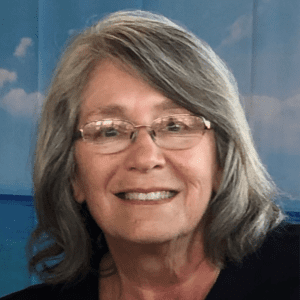
Sometime in my graduation year of 1969-1970, I had an encounter with Sr. Louis Bertrand. Mostly, I saw her at a distance in the Sacred Heart Academy hallways as I was never a student of hers. My senior year was not a particularly happy one. I spent numerous lunch hours in the chapel praying for a different outcome to a situation that only went from bad to worse. On one of those occasions, someone came up behind me and placed her hand softly on my shoulder. She bent over and whispered in my ear, "I am praying for whatever you are praying for". I always thought I was alone in the chapel. I thought I was invisible. I was wrong. The situation remained the same and it saddened me greatly. But an angel found me and shared my heartache. One heartfelt gesture. Thank you Sr. Louis Bertrand, for your tender outreach to a sad teenage girl.
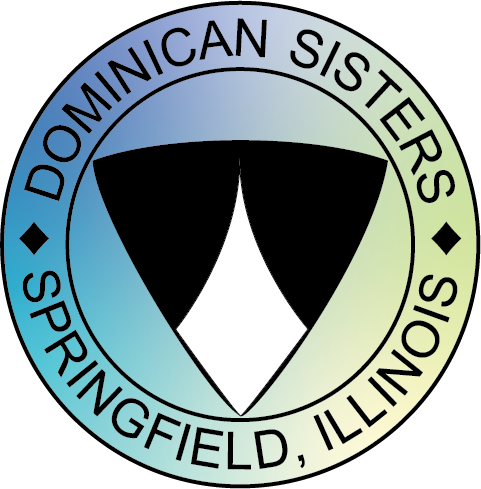
Chris Malmevik
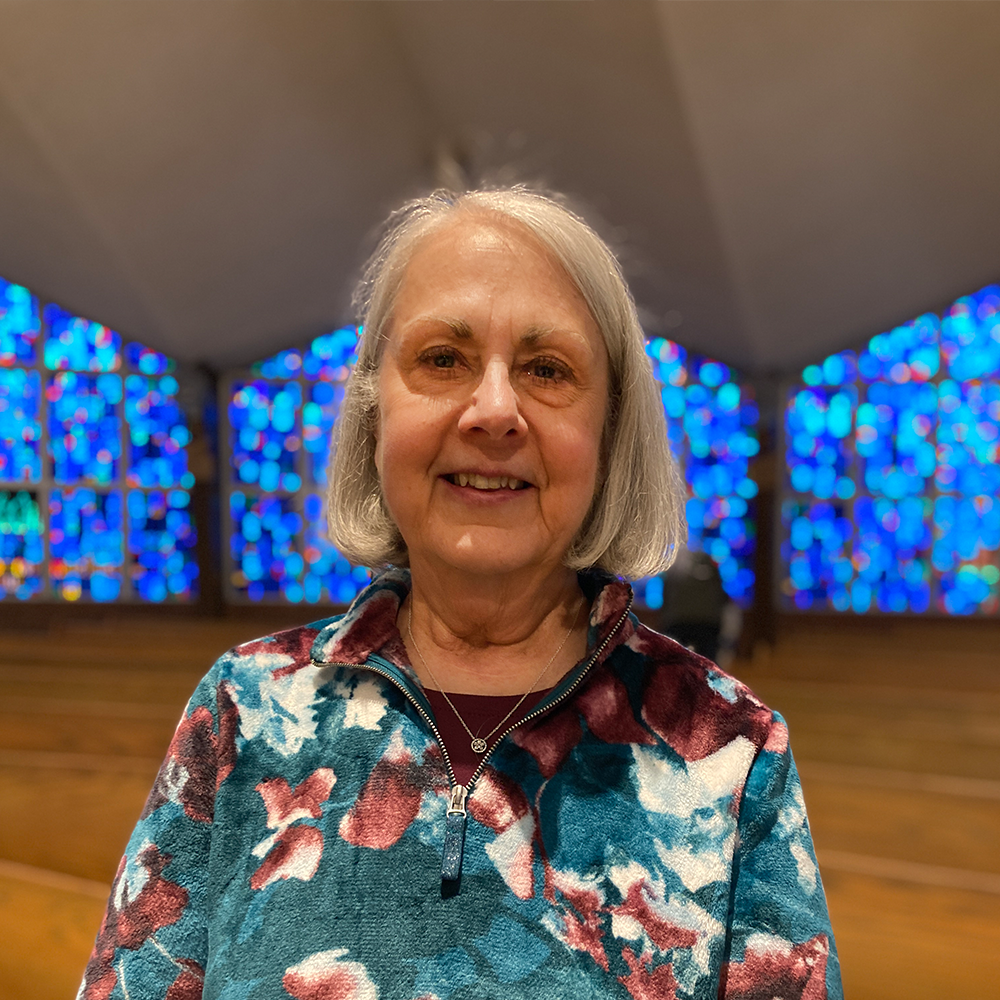
Even before my time in the Office for Catholic Education/ Office for Catechesis (1994-2019) I had met, worked with, and experienced some wonderful people who are known as the Dominican Sisters of Springfield, Illinois. Sister M. Loyola Miller and I attended a CLI, Catholic Leadership Institute, as youth ministers one summer, I from St. Ambrose and she from Our Saviour in Jacksonville. It was a pleasure to get to know Sister Loyola and see how she related to the youth. And it was at the Diocesan Board of Catholic Education in the early 90’s while I represented youth ministry on the board that I first worked with Sister Marilyn Jean Runkel, who later became my boss in the Office for Catholic Education (OCE) from 1994-98. Sister Marilyn Jean was a great support to me and all the aspects of the educational ministry of the diocese. It was an honor to work with and learn from her as she tirelessly led the office in the work of the vineyard.
Other diocesan co-workers included Sister Judith Anne Haase who was the associate director for planning in the OCE and Sister Kathleen Cour who was the director of the Office for Worship. A diocesan project that I coordinated was the DAEC (Diocesan Adult Enrichment Conference), a biennial conference that provided catechesis and worship for all adults of the diocese including Catholic school personnel and parish catechetical leaders. The collaborative efforts, insights, talents and hard work of these sisters made the project successful.
In 1994, after it was announced that I would be the new Associate Director for Adult Education and Catechist Formation, Sister Cecilianne Duello called to congratulate me and wish me the best for my new ministry in the Office. Although I had not yet met her, Sister Cecilianne was an aunt to three members of the youth group in Godfrey. I had never forgotten this act of kindness. Sister Cecilianne became a great support to me and the diocesan catechetical ministry after she became the DRE of Our Saviour’s in Jacksonville. She was always gracious and generous with her time and talents and one of the most beautiful, faith-filled saints of our time. For many years she served as the religious ed leader of the Jacksonville deanery on the REAL (Religious Education Area Leaders) group which was an advisory board for the diocesan OCE and later OC, where she shared much about her ministry and her understanding of her life as a disciple of Jesus.
Throughout the years there were many other Dominicans who joyously dedicated time and talent to our shared ministry to the adults and youth of the diocese. Among these were Sister Mary Alice Mannix, Sister Catherine Fitzgerald, and Sister Margaret McCormick, who worked in parishes and were members of the diocesan CORE (Community of Religious Educators) group that met quarterly for support and formation. Speaking of formation, Sister Mary Fran Gorman graciously contributed her time and talent to some catechist formation courses offered by the diocese through the office. All of these sisters were great examples of commitment and ministry to the good folks of our diocese.
My connection with principals was in support of the catechetical aspects of the schools. Sister Joan Sorge and Sister Maristella Dunlavy were instrumental in bringing about and sustaining the Catholic identity in each of their schools. It was impressive to witness their dedication to Catholic schools in our diocese.
These are just some of the examples of the way Dominican sisters affected me and my ministry to the diocese. To say the Dominican Sisters have had an impact on Catholic education and catechesis in this diocese is a very true statement. My experience of their work ethic, witness, and commitment to building the Kingdom of God in the Diocese of Springfield in Illinois made me very appreciative of all of those I knew/know personally and ministered with and I thank God for them.
Christine M. Malmevik was a Youth Minister at St. Ambrose Parish in Godfrey Illinois from 1990-1994. From 1994-2019 she worked in the Office for Catholic Education, later renamed the Office for Catechesis, as the Associate Director of Adult Education and Catechist Formation, Associate Director for Catechesis and Director of the Office for Catechesis.
Father Patrick Render, CSV
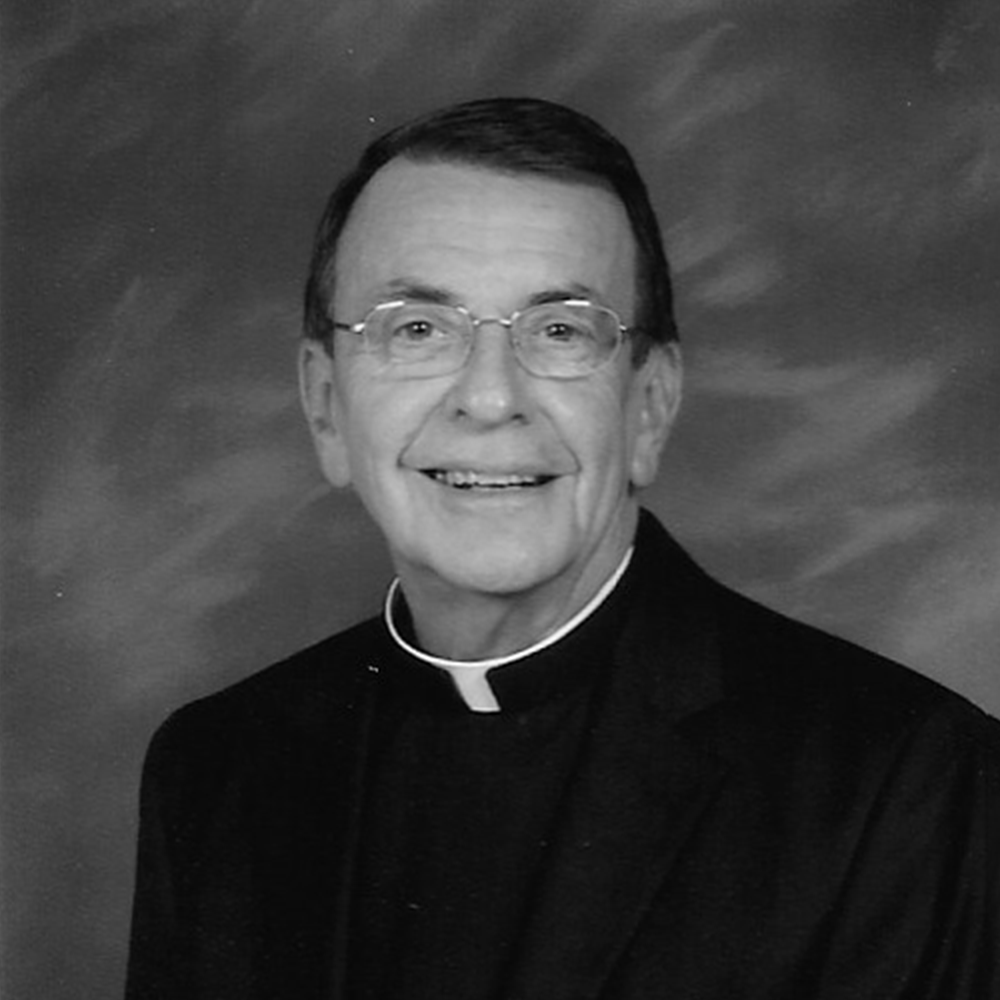
The invitation to share a reflection on the 150th anniversary of the Dominican presence in the Diocese of Springfield calls forth many memories of historical relationships between the Viatorians and the Dominican Sisters. The earliest began in the 1900’s at St. Edward parish in Chicago, founded and served by the Viatorians until 1931 and by the Dominican Sisters for over 100 years.
It was secondary education that then linked the Viatorians and the Dominican Sisters in Springfield. By 1930, when the Viatorians arrived to open Cathedral Boys High school, Sacred Heart Academy had already been operating for over thirty years. It was service to many of the same Catholic families, through brothers and sisters, that initially connected the two secondary schools and the two religious congregations. When Cathedral Boys High School was transformed into Bishop Griffin High School in 1959, and transferred to a new location on West Washington Street, the connections grew stronger. Opportunities for interaction between students and faculties increased. The resources of both schools and both congregations became available to each other. By the mid-1980’s serious conversations began to consider co-education as an important evolution for both schools. I was personally involved in many of those discussions, representing the Viatorians, and was gratified by the openness of the Dominican Sisters and the officials of the Diocesan Office of Education to pursue that option. The success of Sacred Heart-Griffin High School is a testament to the dedicated collaboration of all the parties involved.
The members of the two religious communities were brought together not only through their shared professional work as educators but also through their shared mission as religious men and women whose presence and service were contributing to the building up of the Catholic community in the city. The Dominican mission of preaching the Word of God and the Viatorian mission of proclaiming the Gospel of Jesus Christ, especially to the young, aligned the dynamics of those missions and the relationships between the two congregations along common paths for many years, especially through spiritual experiences of liturgy, chaplaincies, retreats, spiritual direction, and cooperation in diocesan programs. Over the years vocations to both congregations came from the same families as biological brothers and sisters responded to God’s call either as Dominicans or as Viatorians.
From 1994 to 2001 I had the opportunity to serve as the pastor of St. Joseph Church in Springfield. That parish community was blessed with the presence of several groups of Dominican Sisters living in the area and present with us in worship and in parish activities and ministries. Their participation brought a flavor and spirit that reflected their experiences as religious women and their involvement in justice ministries which they shared with our parishioners. It also allowed me to observe the expansion of the Dominican mission as their congregation explored new vistas, opened new ministries, and transferred many of their traditional works into the capable hands of lay women and men. The witness of their transitions in social, global, and ecological consciousness has been remarkable and inspired. More than once I have cited their example in conversations with other religious leaders about transformations taking place in religious life.
The complete history should record that Dominicans and Viatorians ministered together over the years in other sites as well: Marian Catholic High School in Chicago Heights, the Viatorian Novitiate in Arlington Heights, St. Patrick parish in Kankakee, and in the Granite City parish merger that became Holy Family parish and School. Today in the Archdiocese of Chicago it is ministry to young adult immigrants seeking asylum in the United States which connects the Dominicans and Viatorians in intercultural and interfaith houses of hospitality and welcome.
Retrospectives occasioned by anniversaries often lead faith-filled people to recognize in change, endings, and deaths the seeds of future life and the horizon of new beginnings. They call forth faith, hope, and zeal in people grounded in Paschal Mystery and in Pentecost fire. Dominicans and Viatorians are vowed to be such people, as the Dominicans say “for the life of the world”.
Fr. Render is currently the Formation Director for the Viatorians and resides at St. Patrick’s parish in Kankakee, Illinois
Larry Golden
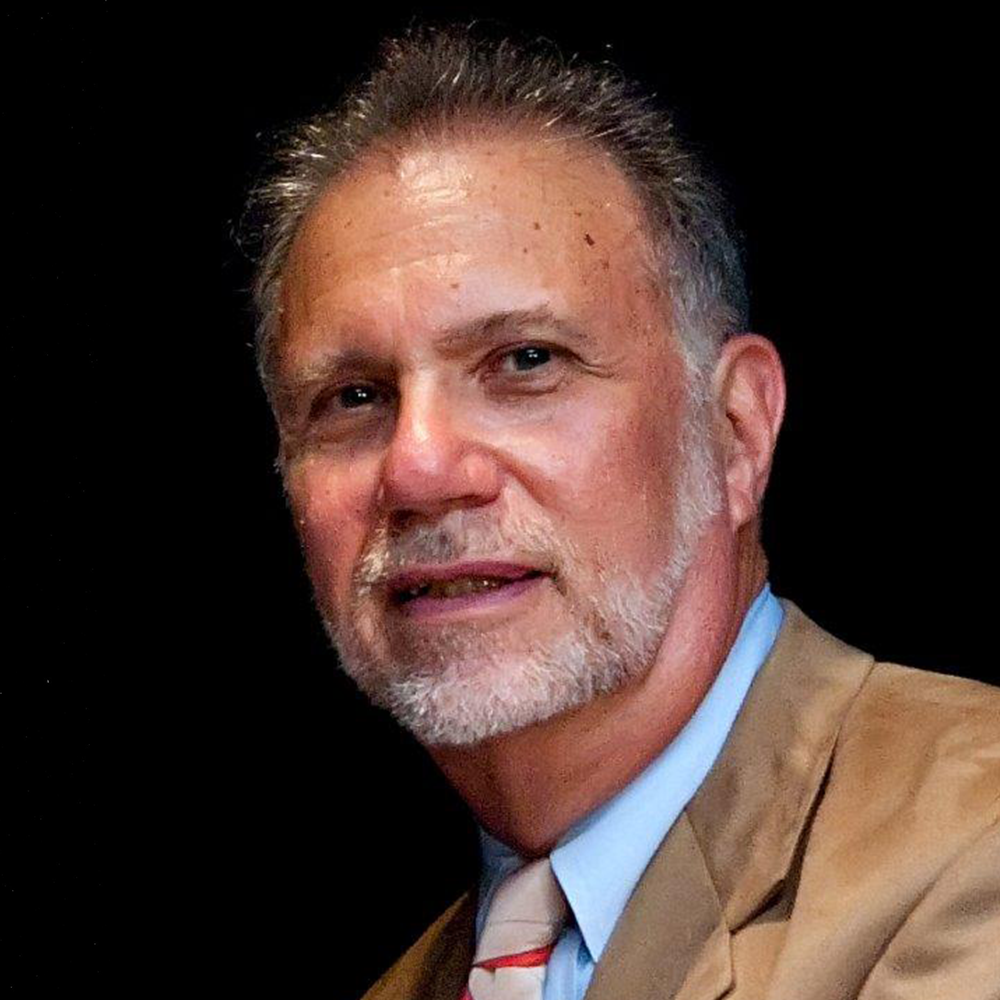
Thinking back over the years I have worked with the Dominican Sisters, their commitment to social justice reminds me of these words from the Reverend Martin Luther King:
“Injustice anywhere is a threat to justice everywhere. We are caught in an inescapable network of mutuality, tied in a single garment of destiny.”
The quote epitomizes both the philosophy, religiosity, and activity of the Springfield Dominican Sisters since the time I have known them: gentle, yet unflinching fighters against racism and injustice in the Springfield, Illinois community.
My first involvement with the sisters was as the coordinator of a trip initiated and organized by Naomi Lynn, then president of Sangamon State University, to Atlanta, Ga., to visit former U.S. President Jimmy Carter’s Atlanta Project. The mission was to see if Springfield leaders could apply what they learned through the Atlanta Project in Springfield to enable our community to address racism and poverty in our disparate neighborhoods.
Out of that visit, The Springfield Project (TSP) was formed with a goal to empower residents to improve and gain control of their living situation in an area that came to be called the Mather Wells Neighborhood. The Dominican Sisters were a critical part of TSP, especially in their focus on working directly with the neighborhood’s Black women leaders. Indeed, one of the sisters worked for TSP as an office assistant. Their dedication was solidified when they purchased a house in the neighborhood, allowing sisters to live there and eventually assist in the ministry of the nearby Sacred Heart Parish while continuing their work with Mather Wells residents. The Springfield Project still exists, although in a different form with an emphasis on improving the housing stock in a deteriorated east side community.
A few years later, I was involved in founding the Downstate Illinois Innocence Project (DIIP) dedicated to working with individuals, mostly minority and poor, to help free those totally innocent of the crimes for which they were convicted. The national innocence movement was started as a result of numerous wrongly-convicted individuals on death row across the country being proven innocent through DNA testing. Given their opposition to the death penalty and their commitment to pursue justice for those most in need, the Dominican Sisters, under the leadership of Sister Mary Jean Traeger, supported this work. This support helped DIIP grow over the course of 22 years into the Illinois Innocence Project (IIP). Sisters continue to attended IIP events, provide financial support, and meet with the innocent individuals they helped get released from prison.
Particularly memorable was the sisters’ support of Julie Rea, who was eventually exonerated with the support and assistance of DIIP. Although clearly innocent, Julie was convicted in 2002 of killing her own son in the middle of the night in their home. After Julie’s initial conviction was overturned and despite significant evidence of her innocence, the States Attorney insisted on a retrial. I will always remember the trips from Springfield to Carlyle, Ill., with Sister Maira Barry as we attended the trial and provided support to Julie, her family, and those of us in DIIP who were advocating for Julie. Julie was found innocent at the trial, fully exonerated, and later came to Springfield to share an emotional visit over lunch with all the sisters at the motherhouse.
It can truly be said that IIP’s growth and success was nurtured by the financial support and active participation of the Dominican Sisters during this formative period. In the intervening years, 23 innocent persons who served more than 350 years in prison gained their freedom through this organization.
An overarching goal of the sisters in all their work has been addressing racism. They have joined or supported multiple local efforts to counter systemic racism in Springfield. Most impressive is the example they provide for other institutions through their commitment to seeing the world through an anti-racist lens and seeking personal and institutional transformation. With the intense work and leadership in recent years of Sister Marcelline Koch, the sisters have accomplished this by utilizing the services of Crossroads Antiracism Training. The Crossroads method has been widely adopted in Springfield in our continuing fight against institutional racism. It has led to the creation of SCODR—Springfield Coalition on Dismantling Racism—and has kept alive the Dominican commitment to dismantle racism within the Springfield community as well as among the Dominicans.
I, along with many others, have attended the Crossroads trainings, as individuals and as representatives of other organizations and institutions, such as the racial task force at the University of Illinois Springfield, to which I belong. Most recently, the Abraham Lincoln Unitarian Universalist Congregation turned to Sister Marcelline Koch and members of the Springfield Dominican Anti-Racism Team (SDART) in their own efforts to create an antiracist organization. In this way the example of the Dominican Sisters continues to be valuable to all engaged in anti-racism work in our region.
These are just some of the ways the sisters are quietly leading this community to challenge racism and pursue justice for all. Their leadership and support in the fight against injustice continues to inspire me and to reinforce my own efforts to build a just society. As we who engage in this work know, it is trying both physically and to the soul. We constantly carry the tension of approaching a world filled with injustice and resistance to change.
On a personal level, working with the sisters has helped me through some challenging times as we engage in our attempt to build a just world. There have been instances over the years when I have come home to my wife and family and my wife would observe me and say: “You must have been with the sisters today!” She said she could tell because I would have a more serene, satisfied look on my face rather than the tired, tense disposition that often occurs in this work. It is this inspiration provided by the Dominican Sisters that helps me—and, I am sure others—continue this difficult journey.
Larry Golden is a teacher/activist for justice and the Founding Director of the Illinois Innocence Project.
Shelly Heideman

I was first introduced to the Springfield Dominican Sisters in 2008, when I met the vivacious and passionate Sister Mary Jean Traeger, OP. She was, at that time, the parish administrator at St. Katharine Drexel Parish. I was intentionally developing relationships with clergy and religious leaders throughout Springfield, especially those who served Springfield’s east side, to cast a vision and an invitation to join me in creating an organization which would provide a way for people of faith to ensure that their values were lived out in the public arena in a new way—not though social services and charity, but by working with decision makers to make changes in laws, policies and procedures—systemic change!
Sister Mary Jean became part of that vision and a founding member of the Faith Coalition for the Common Good. She understood the importance of ALL people having a voice including the black and brown people in the parish—and she was keenly aware of the racial and economic inequities in our community.
The Faith Coalition for the Common Good is a coalition of faith communities, community organizations, and individuals working collaboratively for racial equity, civic engagement, a fair economy, and participatory decision making.
Since its inception, the Springfield Dominican Sisters have been a stalwart pillar of the Faith Coalition, from Sister Mary Jean, to Sister Linda Hayes, to Sister Marilyn Jean Runkel. Each of these strong women have consecutively represented the Dominican Sisters on the Faith Coalition’s Board of Directors over the past 15 years.
In addition to their active involvement, the Springfield Dominican Sisters have generously supported the Faith Coalition financially through many Poverty, Justice and Peace Grants; by sponsoring our fundraising events, and purchasing tickets for our banquets and breakfasts. They have also modeled institutional racial equity by introducing the Springfield community to Crossroads Anti-Racism Organizing and Training, and by applying these principles to their own congregation.
I have daily witnessed in the Dominican Sisters their charism of prayer, study, community, (common life) and preaching/teaching. The Dominican Sisters I know also follow the advice of Pope Francis to priests to “be shepherds with the smell of the sheep,” meaning to live with God’s people, love God’s people, be with God’s people, cry and laugh with God’s people.
I am so grateful that God has brought Sister Mary Jean, Sister Linda, Sister Marilyn Jean, Sister Marceline Koch, Sister Beth Murphy, and so many other dear Dominican Sisters into my life! They have helped me on my life’s journey! God bless the Springfield Dominican Sisters!
Shelly Heideman is the former Executive Director of the Faith Coalition for the Common Good.
Mary Stewart
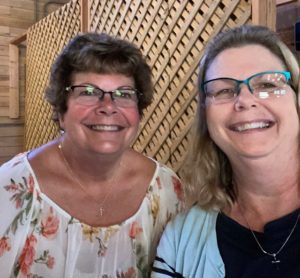
I have two good stories about the impact the Springfield Dominican Sisters had made in my life.
First Sister M. Pauletta Overbeck, my principal at Little Flower. I am the oldest of three and even though I was excited to attend school, wanted to be at home with my Mom and siblings too. Sister Pauletta recognized my problem and had a unique way of solving it. She learned I loved chocolate pudding more than any other dessert. She began to call me her chocolate pudding and on a good day, she would ask, “With whipped cream on top?” Every day I looked forward to that greeting and helped me overcome my fears. Years later, when Sister Pauletta was retired at the motherhouse, my mom and I visited with her. Without any prompting, she greeted me with, “Well hello chocolate pudding!” I was blessed to attend her funeral and will always hold a special place in my heart for this lady!
Second, Sister Francis Mary Philipp. While I was in high school at Sacred Heart Academy I joined chorus and loved singing in a group but not solo. Sister Francis Mary helped me and many others overcome that fear and helped us gain confidence in ourselves and the ability to say “we did it!” I think to this day this confidence helped me in my career to overcome things I did not think I could do. “I tried it and I did it” became a common phase in my vocabulary!
Mary graduated from Sacred Heart Academy in 1974. Here she is (left) with her sister, Kathleen Sanders Farley, SHA class of 1978.
Share YOUR Story, too!
We'd love to hear from you how one or more of our sisters made a positive impact on your life.

